Professional Courses
Industry-relevant training in Business, Technology, and Design
Categories
Interactive Games
Fun games to boost memory, math, typing, and English skills
Typing
Memory
Math
English Adventures
Knowledge
ICSE History Explained: Making the Past Engaging for Young Learners
ICSE History Explained: Making the Past Engaging for Young Learners
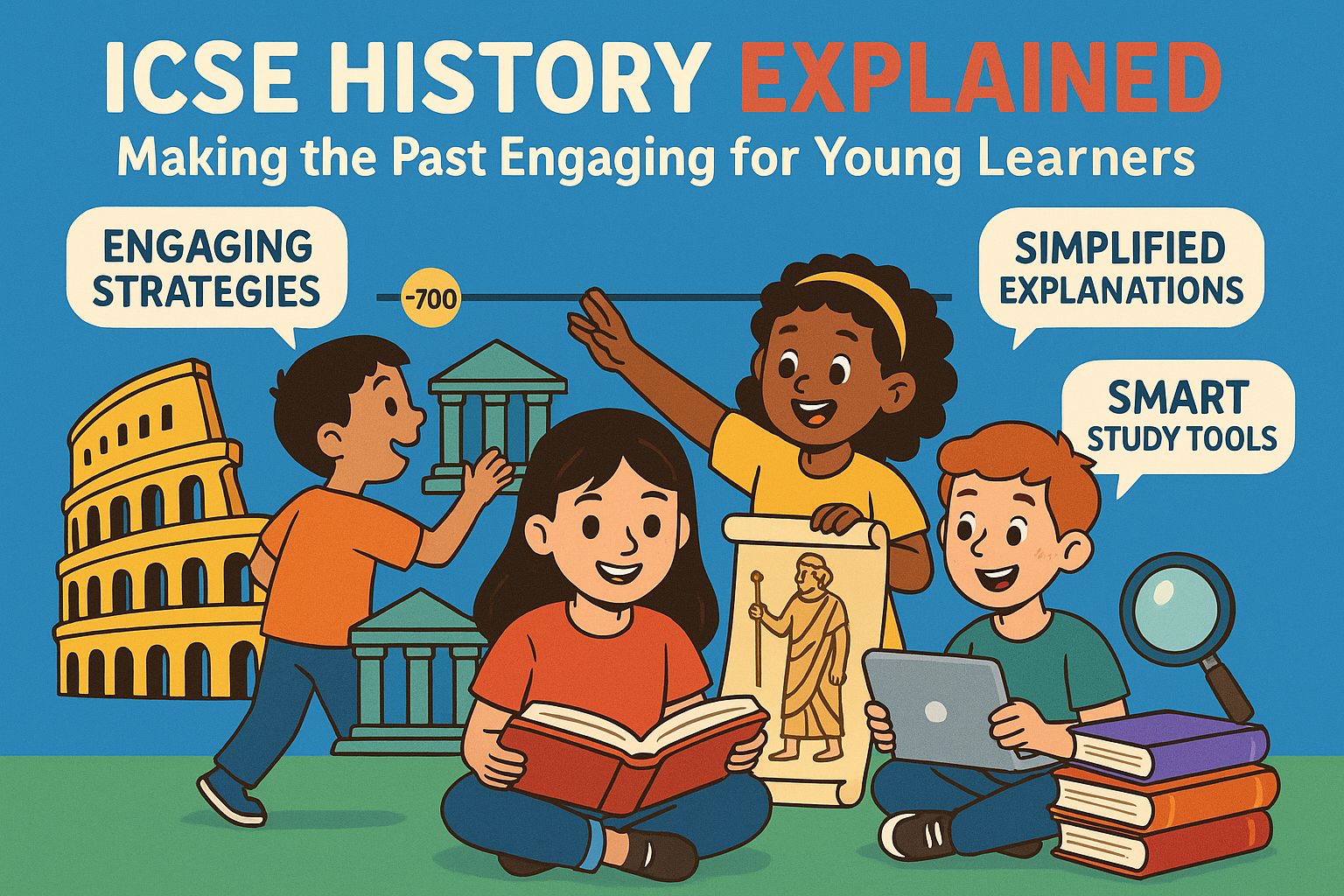
History often feels distant to young learners, especially when they struggle to connect events of the past with their own lives. Yet ICSE History has the potential to be one of the most engaging subjects when taught with clarity, context, and curiosity. The ICSE syllabus emphasises understanding over memorisation, encouraging students to interpret events, analyse causes and effects, and appreciate the human stories behind major developments.
Parents and educators can help children view History as an exploration of real people and real decisions rather than a long list of dates. With modern platforms such as AllRounder.ai offering ICSE help through interactive lessons, practice tests, and simplified explanations, the subject becomes easier, more enjoyable, and far more meaningful. This guide explains how ICSE History works, why it is unique, and how students can engage with it confidently using structured approaches and thoughtful support.
Understanding How ICSE Approaches History
The ICSE board is known for its analytical and concept-focused methodology across all subjects. This philosophy is described in detail in the Understanding the ICSE Board and Its Educational Approach resource, which highlights how ICSE encourages students to think independently and understand the deeper meaning behind lessons.
In History, this means students are expected to explore the reasons behind events, identify patterns, and understand the consequences that shaped societies.
Rather than encouraging memorisation, the curriculum pushes learners to interpret developments and understand the human motivations behind major shifts. This approach prepares students for higher education, as explained in the How the ICSE Syllabus Prepares Students for Higher Studies article, which emphasises how ICSE develops critical thinking skills that benefit not only History, but subjects such as literature, geography, and civics as well.
Why ICSE History Stands Out
One of the most important distinctions of ICSE History is its focus on reasoning instead of rote learning. While some boards require students to remember key facts, ICSE expects them to explain why events unfolded the way they did, what their impacts were, and how they influenced different societies.
This perspective is reinforced in the ICSE Focus on Analysis Over Rote Learning guide, which explains why ICSE is structured to build thinking skills rather than surface-level recall.
The syllabus includes chapters on:
- The Indian National Movement
- The World Wars
- Ancient and Medieval History
- The Development of Democracy
- Global Cooperation through the United Nations
Students are encouraged to understand how these chapters interconnect. The analytical nature of the subject helps students recognise patterns, compare situations, and connect historical lessons to modern issues.
With the support of structured programs available through AllRounder.ai’s ICSE Courses, students gain the clarity needed to dissect complex historical narratives with confidence.
Building Curiosity as the Foundation for History Learning
History becomes significantly more engaging when it is treated as a collection of stories rather than a formal academic subject. Children naturally connect with stories, and when History is introduced as a series of human experiences, struggles, victories, and choices, they begin to understand it on a deeper level.
Parents can help spark curiosity by:
- Discussing historical personalities.
- Encouraging children to imagine life in different periods.
- Asking them what they think might have happened if certain events unfolded differently.
The Why Choose the ICSE Board for Your Child’s Future resource explains that ICSE nurtures curiosity and well-rounded understanding across all subjects, making students more imaginative and open-minded.
By viewing History as a narrative of real people and real situations, young learners become more invested in understanding how societies changed over time.
Using ICSE Textbooks Effectively
ICSE textbooks are rich in information and designed to cover material comprehensively. However, students often feel overwhelmed by the density of the chapters.
To ensure that textbooks become helpful rather than intimidating, parents can encourage children to break each chapter into smaller themes such as:
- Background information
- Major events
- Causes and effects
- Overall significance
This mirrors the structure of ICSE examinations, which assess understanding rather than memorised detail.
After reading each section, children can highlight important points or write short explanations of what they understood. Discussing the chapter afterward helps reinforce comprehension.
The guidance offered in ICSE Study Help to Tackle Concept-Heavy Subjects explains why breaking large concepts into manageable segments allows students to process information more effectively.
Using digital tools such as AllRounder.ai ICSE Courses can build on textbook learning by presenting complex ideas in simplified, interactive formats.
Making History Engaging Through Activities and Multimedia
Visual learning plays a major role in helping children understand and appreciate History.
Students often find it easier to grasp topics when they can see:
- Maps
- Timelines
- Photographs
- Short documentaries
Creating timelines at home, drawing maps, or watching videos related to world wars or the freedom movement can make lessons more relatable.
Storytelling also plays a powerful role. Parents can narrate important events as stories with emotions, motivations, and conflicts.
Using interactive digital resources such as AllRounder.ai Games makes learning fun and memorable by offering quizzes, challenges, and rapid revision exercises aligned with the ICSE syllabus.
Understanding the ICSE Syllabus Structure
The ICSE Subject Guide for Group I, II, and III provides a clear understanding of how History fits into the broader academic framework.
Students begin exploring historical concepts in middle school, but the subject becomes more detailed and analytical in:
Consistent exposure to simplified explanations, practice questions, and interactive lessons helps develop confidence and prevents last-minute stress.
Strengthening Analytical Writing in ICSE History
Writing answers effectively is one of the most important skills in ICSE History.
Students must present information clearly, logically, and with supporting details. Instead of memorising answers, they should explain events in their own words while maintaining structure.
Tips for better writing:
- Write in point-wise sequence even in paragraphs.
- Include causes and effects naturally.
- Add names, dates, and key consequences where relevant.
Practising with sample questions and past papers is essential. Platforms such as AllRounder.ai Practice Tests help children write within time limits while receiving immediate feedback.
Connecting History with Real Life
History becomes far more memorable when children see how it relates to the modern world.
Parents can:
- Discuss current events and their historical roots.
- Compare democratic practices today with older systems.
- Explain how institutions like the UN evolved from earlier ideas of cooperation.
The How ICSE Help Platforms Simplify Learning for Students resource explains that connecting academic content with real-world examples strengthens critical thinking.
Avoiding Memorisation and Building True Understanding
ICSE History rewards understanding rather than memorised content.
Children should be encouraged to create:
- Mind maps
- Flowcharts
- Summaries
This approach aligns with the analytical nature of the board described in Understanding the ICSE Board and Its Educational Approach, which emphasises comprehension and reasoning.
Using Digital Learning for Better ICSE History Preparation
Digital tools such as AllRounder.ai offer lessons designed specifically for ICSE learners, allowing them to explore topics interactively.
Mock tests, chapter-wise quizzes, and quick revision modules complement textbook study.
Students gain confidence through repeated practice and instant feedback, reducing exam anxiety and encouraging steady improvement.
Supporting Higher-Level Thinking Through ICSE History
ICSE History lays the foundation for interpretation, evaluation, and comparison.
The How the ICSE Syllabus Prepares Students for Higher Studies article highlights how ICSE students transition smoothly into higher education.
Students in Grade 11 and Grade 12 can continue strengthening these skills through structured materials available via AllRounder.ai.
Making ICSE History Enjoyable at Home
Parents can make History enjoyable through:
- Watching documentaries together
- Visiting museums
- Discussing historical events
- Encouraging children to recount what they learned
Even playful activities like role-plays or AllRounder.ai Games deepen understanding while keeping learning light and fun.
Overcoming Difficulties in ICSE History
Many students find ICSE History challenging due to long chapters and complex narratives.
These struggles can be overcome through gradual learning and interactive reinforcement.
The ICSE Study Help for Tackling Concept-Heavy Subjects explains how dividing topics into smaller segments improves clarity.
Exam Strategy for ICSE History
Effective preparation involves consistent revision.
Students should:
- Read and summarise chapters
- Revise regularly
- Practise timed writing
- Attempt mock exams on AllRounder.ai Practice Tests
Conclusion: Making History Meaningful for Young Learners
ICSE History becomes fascinating when students understand it as a story of people, choices, and consequences.
With structured explanation and support from platforms like AllRounder.ai, students can strengthen comprehension, build analytical skills, and approach the syllabus with confidence.
History then becomes not just a subject, but a journey that teaches perspective, empathy, and awareness, qualities that stay with young learners for life.
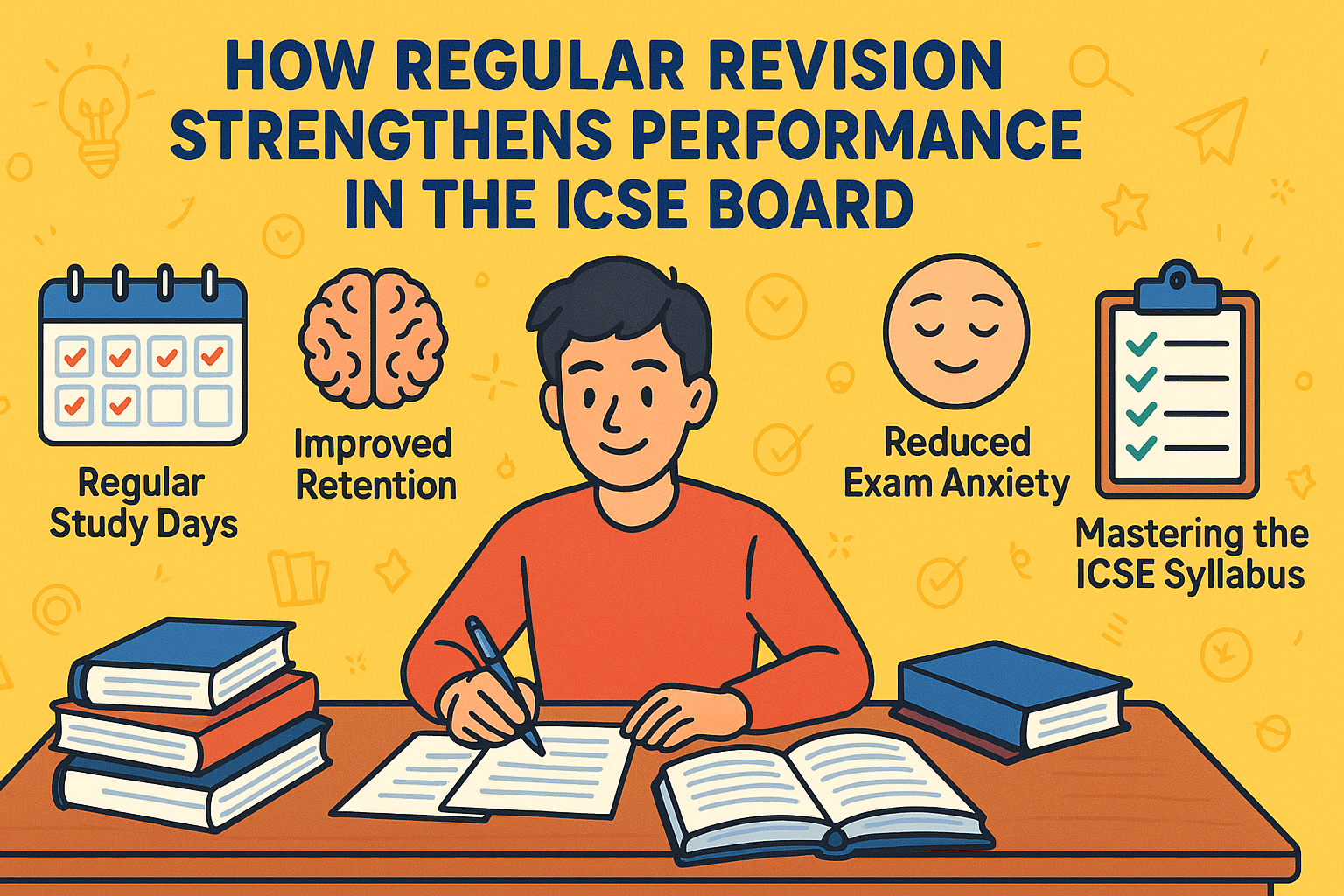
Learn how regular revision strengthens performance in the ICSE board, improves retention, reduces exam anxiety, and...

Learn how to create a reading-friendly home environment for ICSE students to improve comprehension, confidence, and...
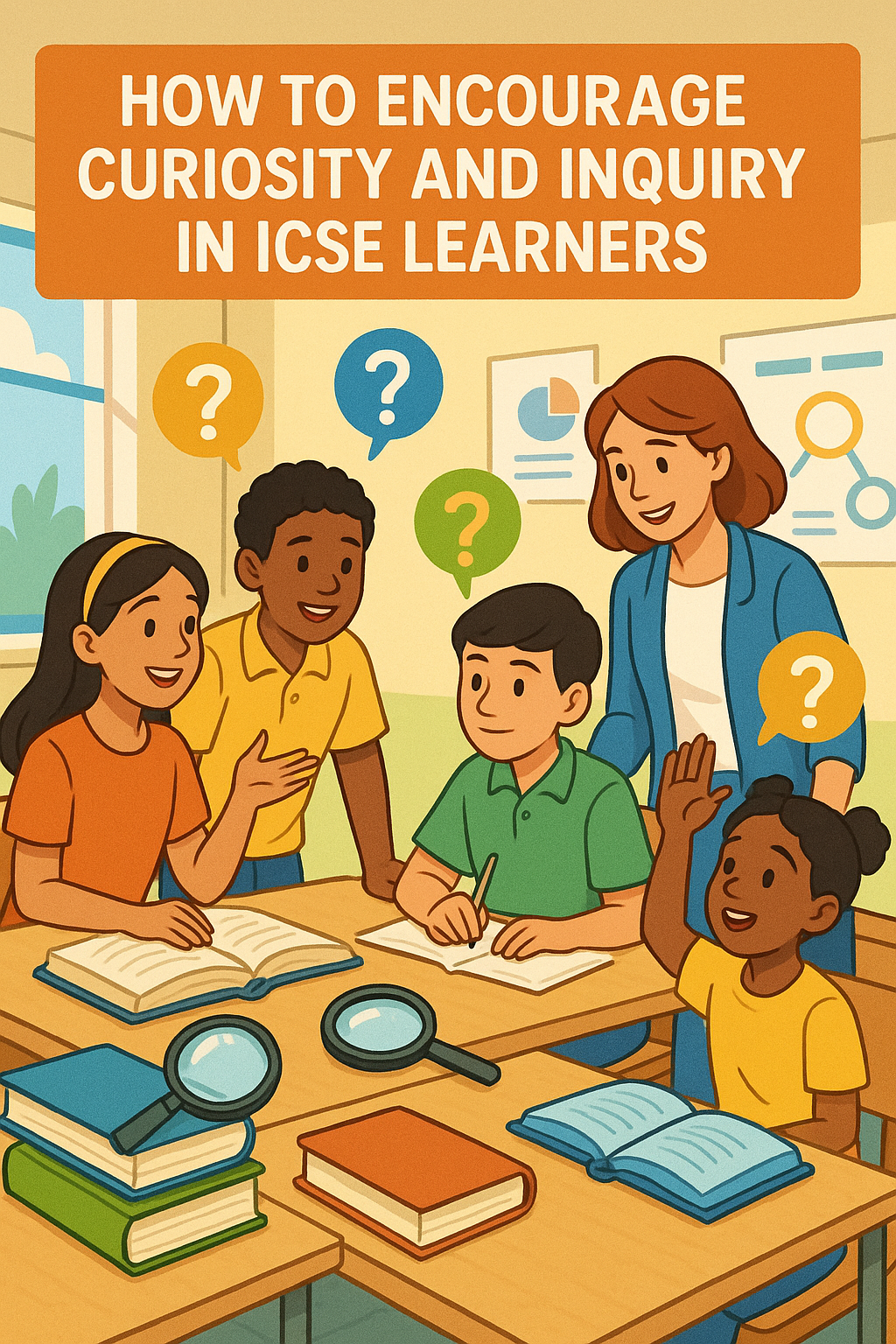
Learn how to encourage curiosity and inquiry in ICSE learners by supporting concept clarity, safe questioning, and...
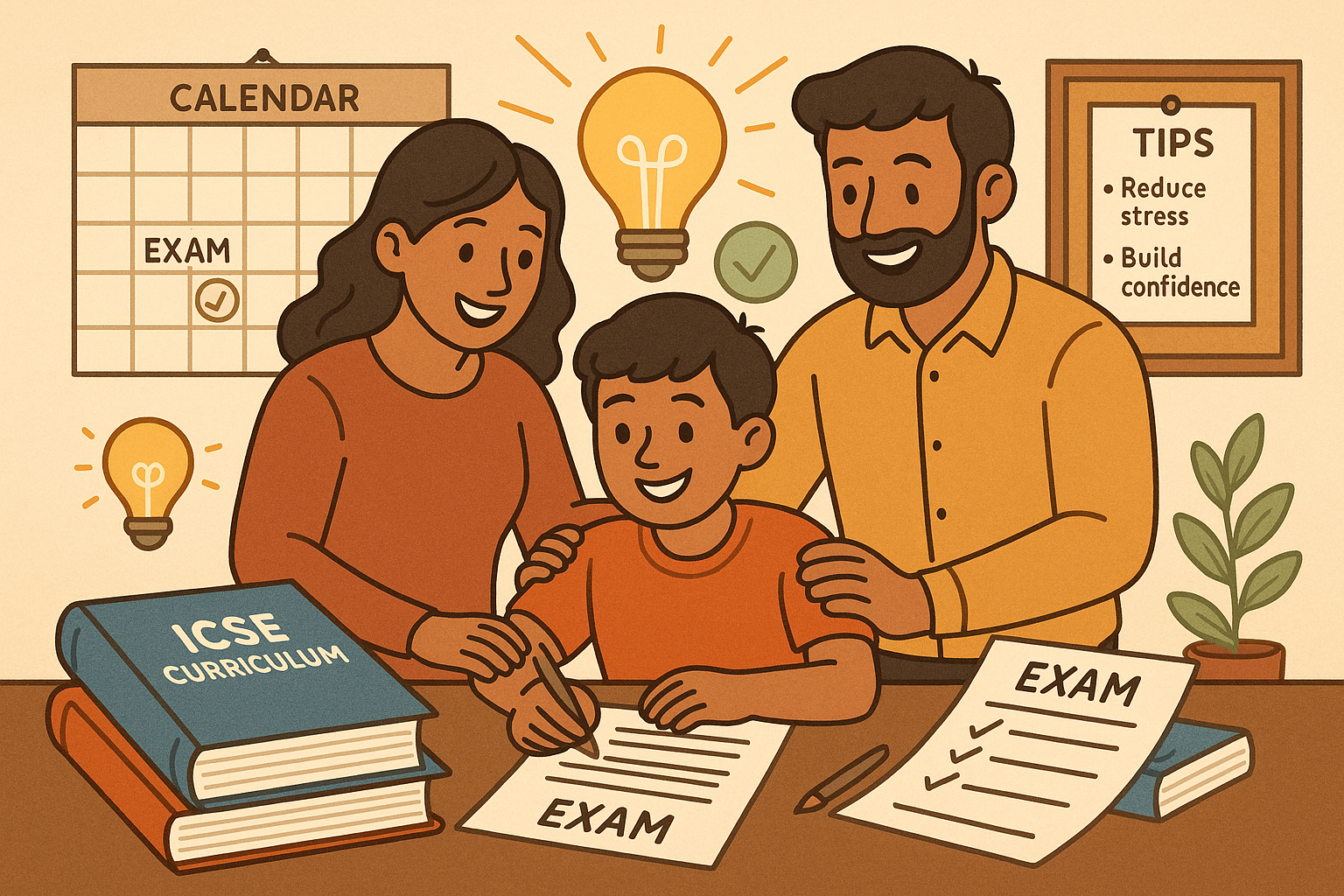
Explore the role of parents in supporting ICSE academic growth, from understanding the ICSE curriculum to building...
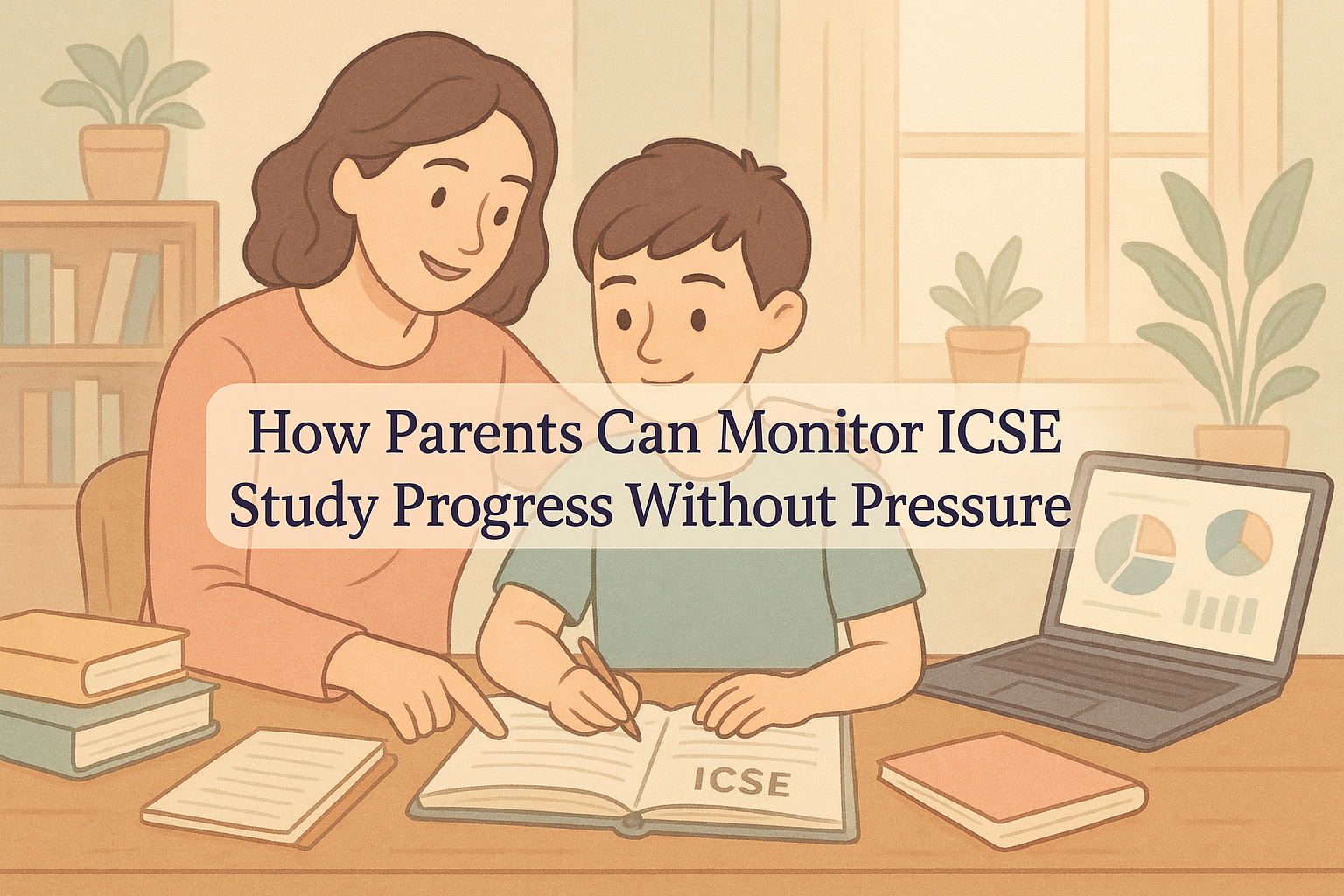
Learn how parents can monitor ICSE study progress without pressure, support concept clarity, reduce stress, and help...
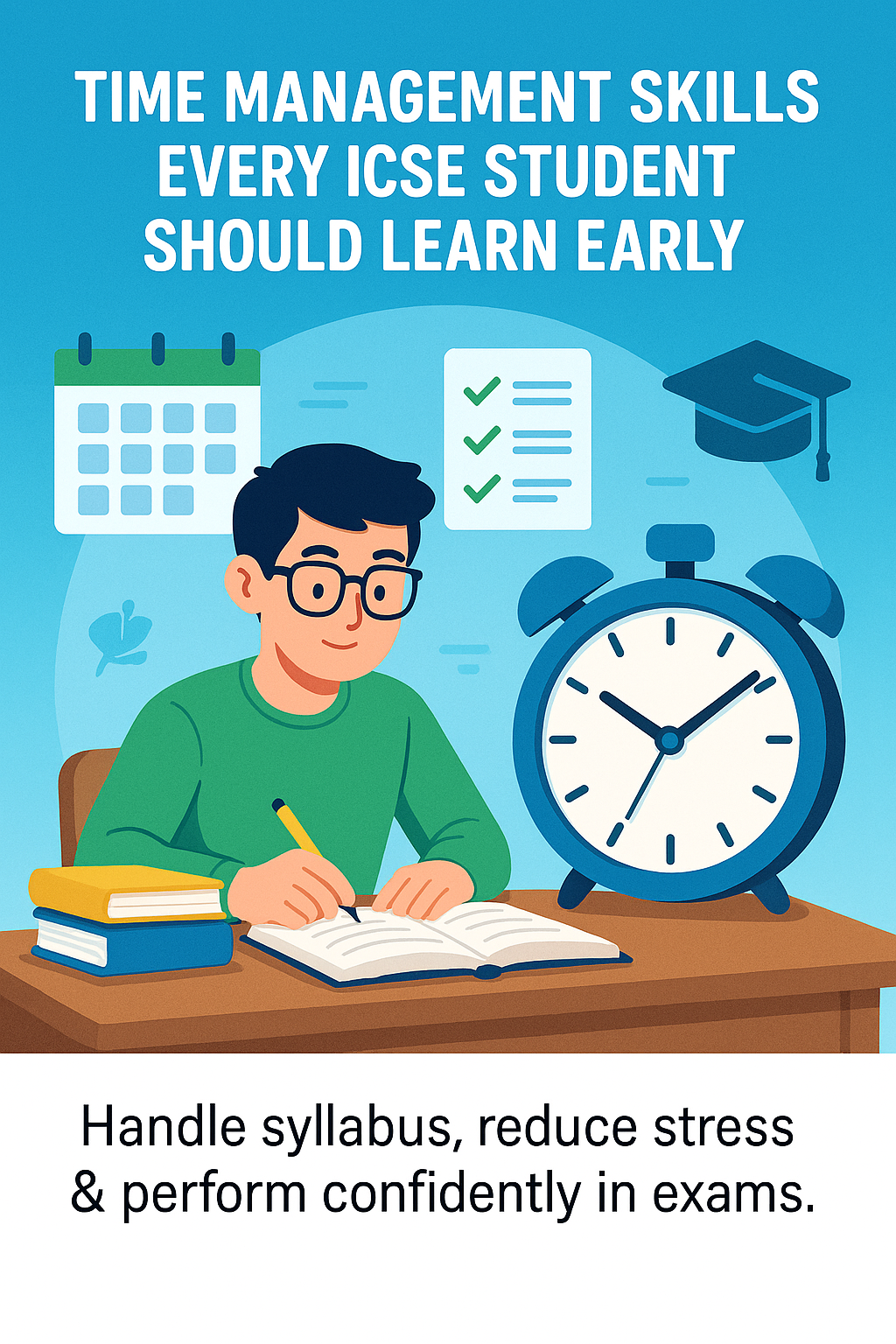
Learn the essential time management skills every ICSE student should build early to handle the syllabus, reduce...
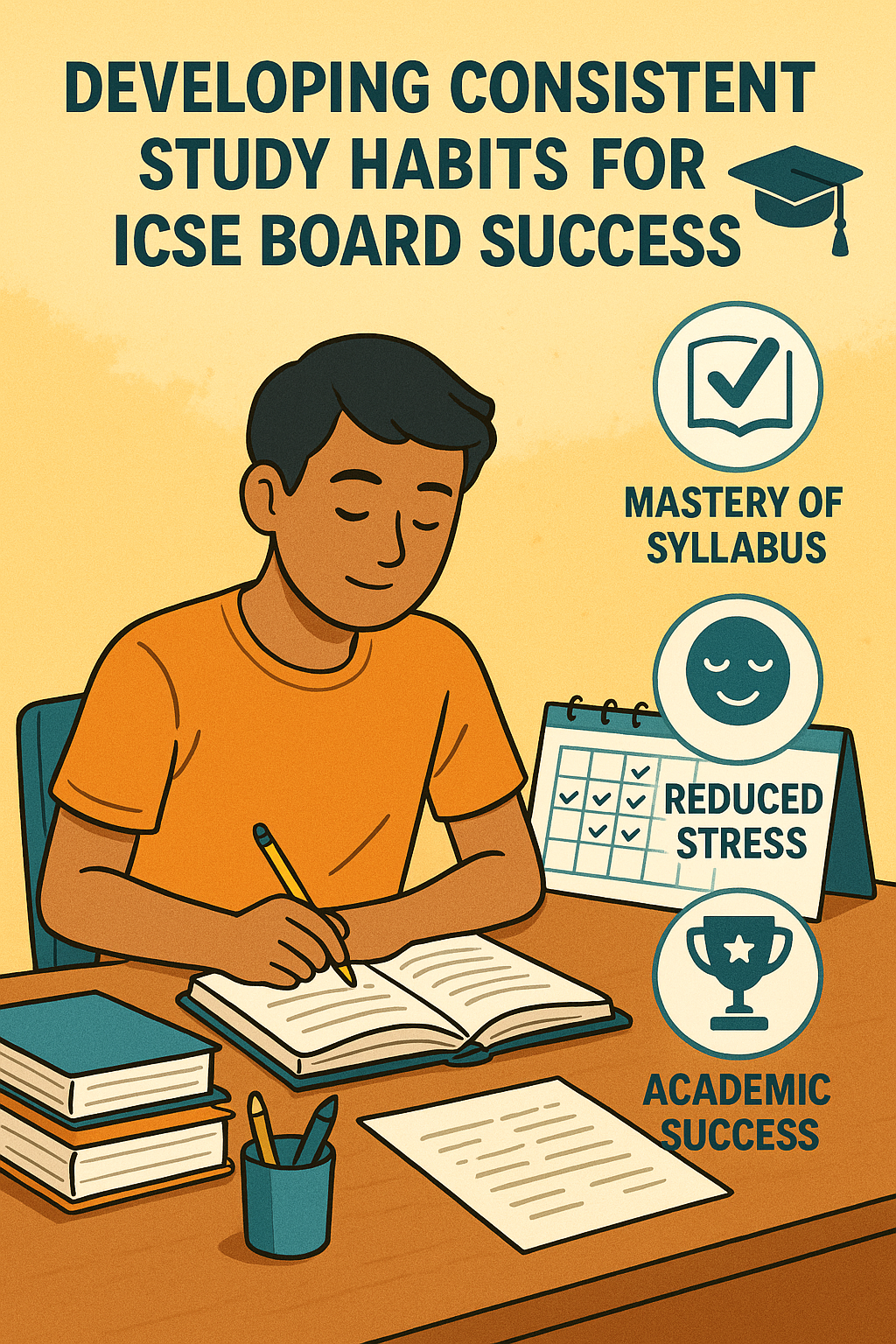
Learn how consistent study habits help ICSE students master the syllabus, reduce stress, and achieve long-term...
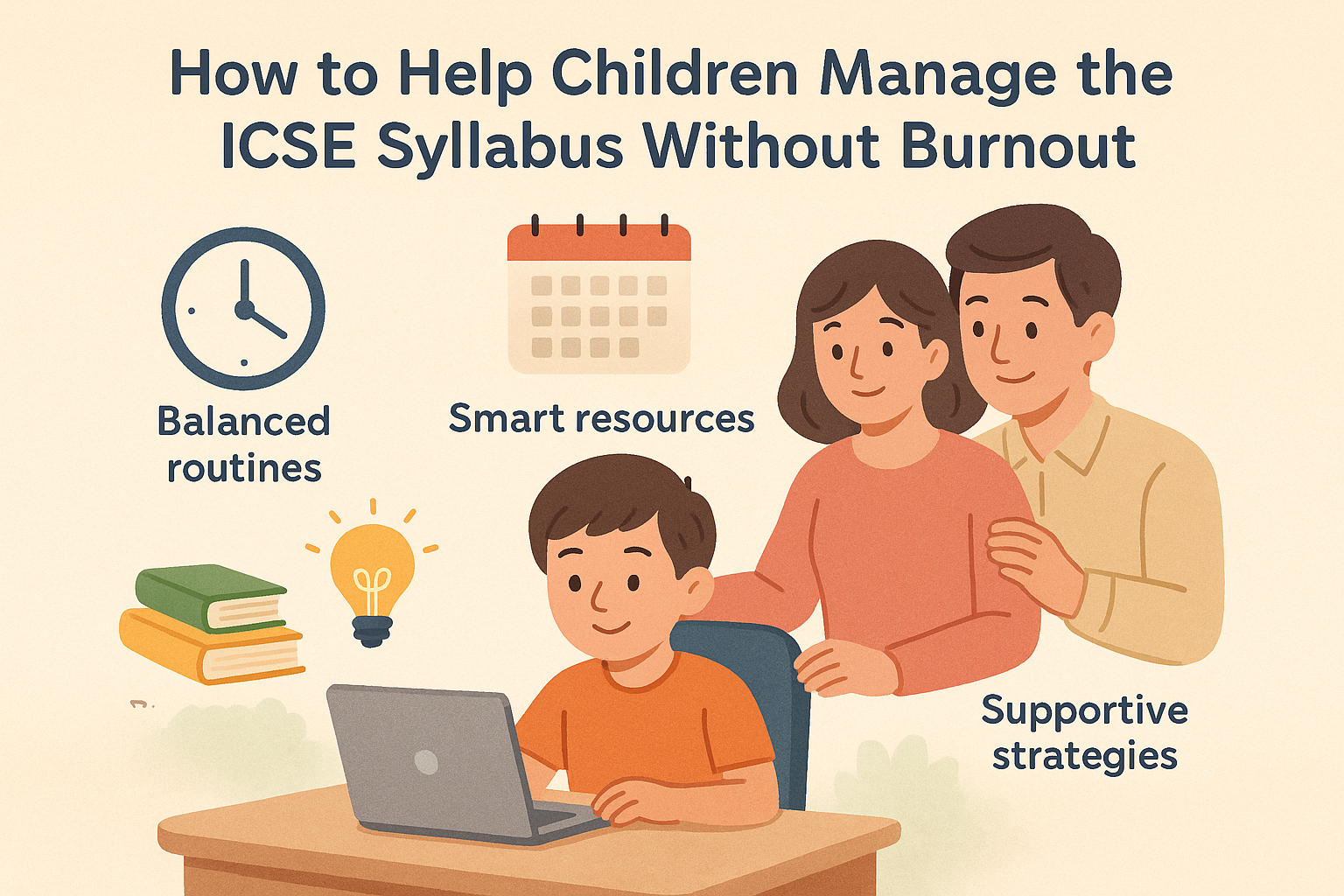
Learn how parents can help children manage the ICSE syllabus without burnout using balanced routines, smart...
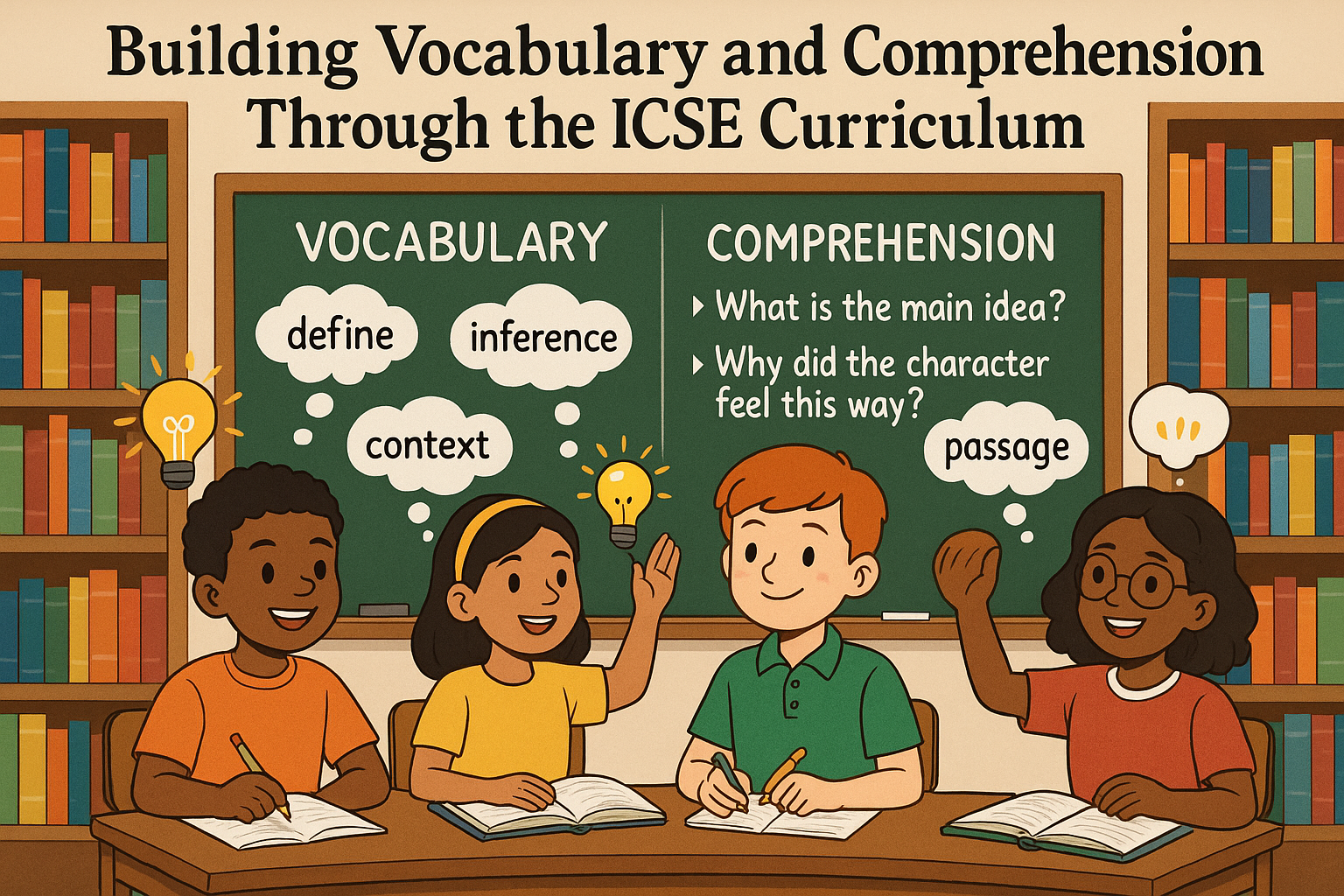
Learn how the ICSE curriculum strengthens vocabulary and comprehension skills while helping students think deeply...
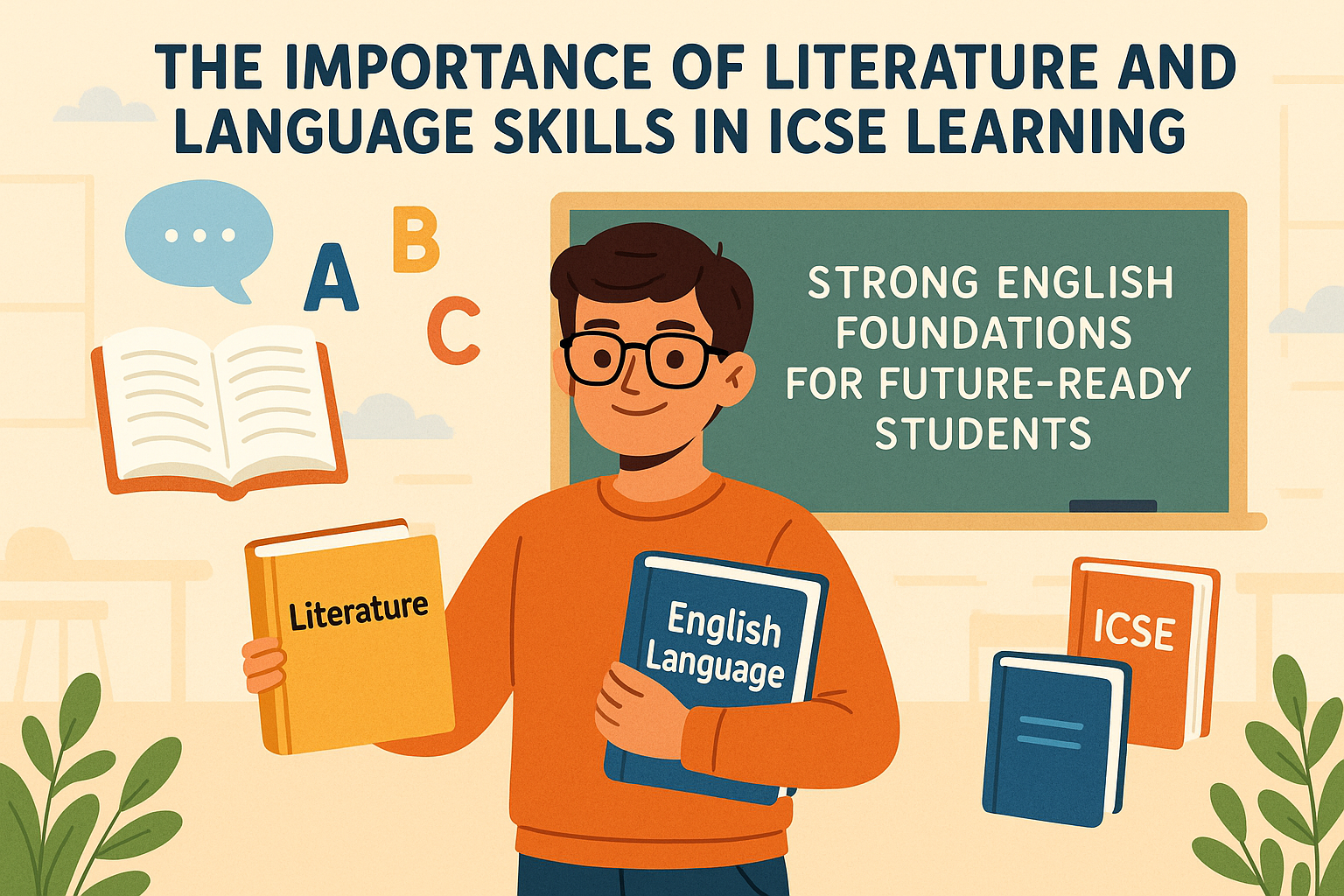
Explore why literature and language skills are central to ICSE learning and how strong English foundations shape...
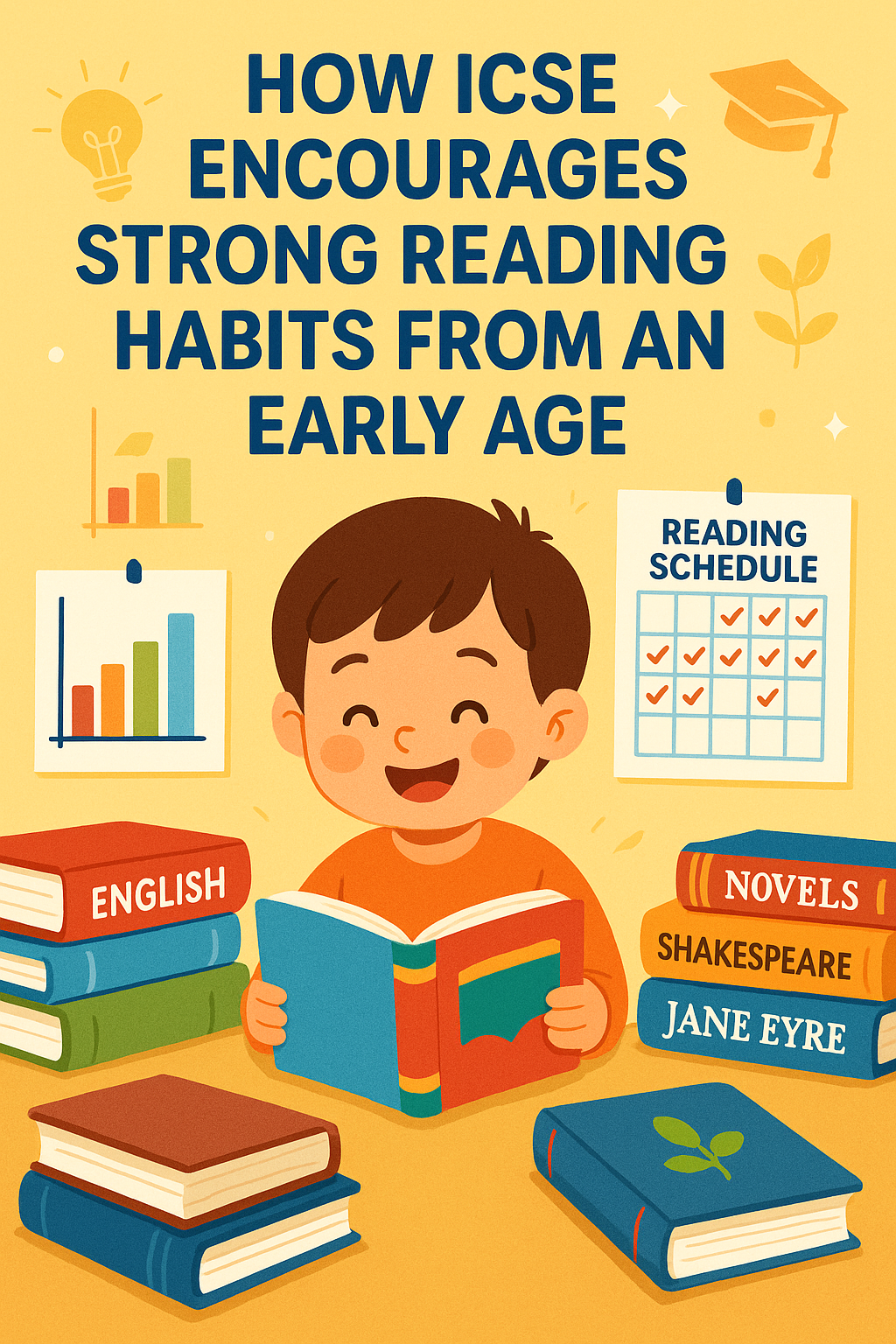
Discover how the ICSE curriculum builds strong reading habits early through textbooks, literature, and structured...
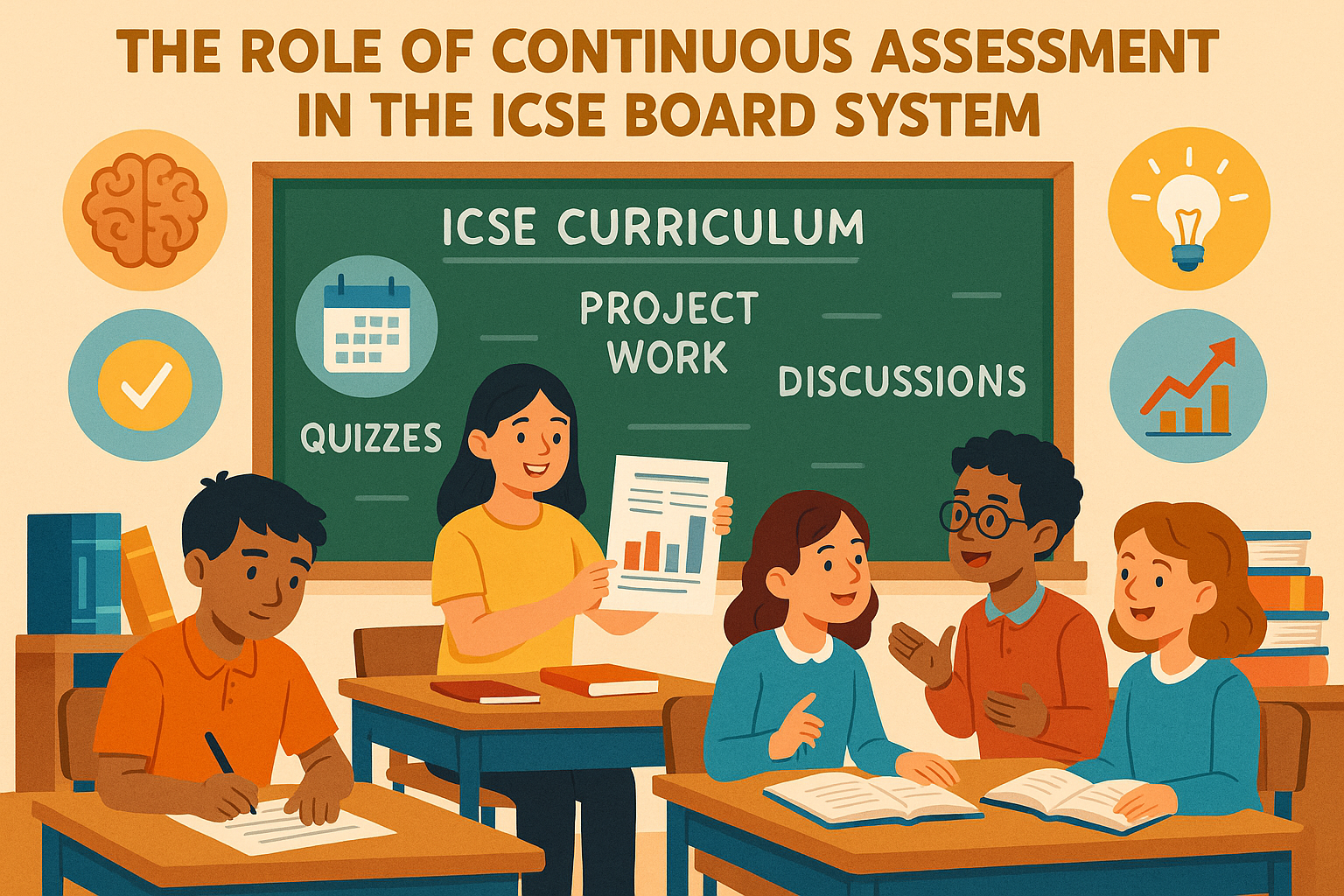
Understand how continuous assessment strengthens the ICSE curriculum by supporting deep learning, consistency, and...
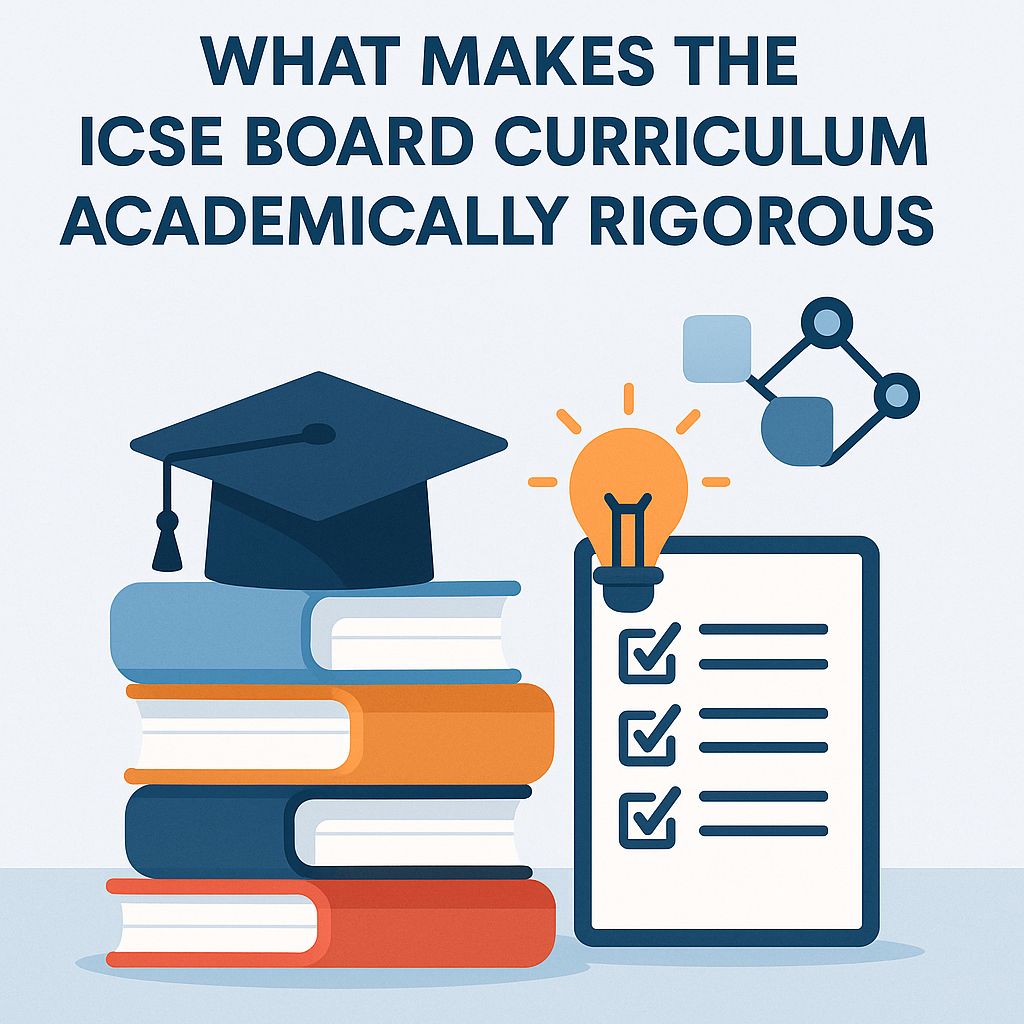
Explore what makes the ICSE curriculum academically rigorous and why its depth, structure, and assessment style...
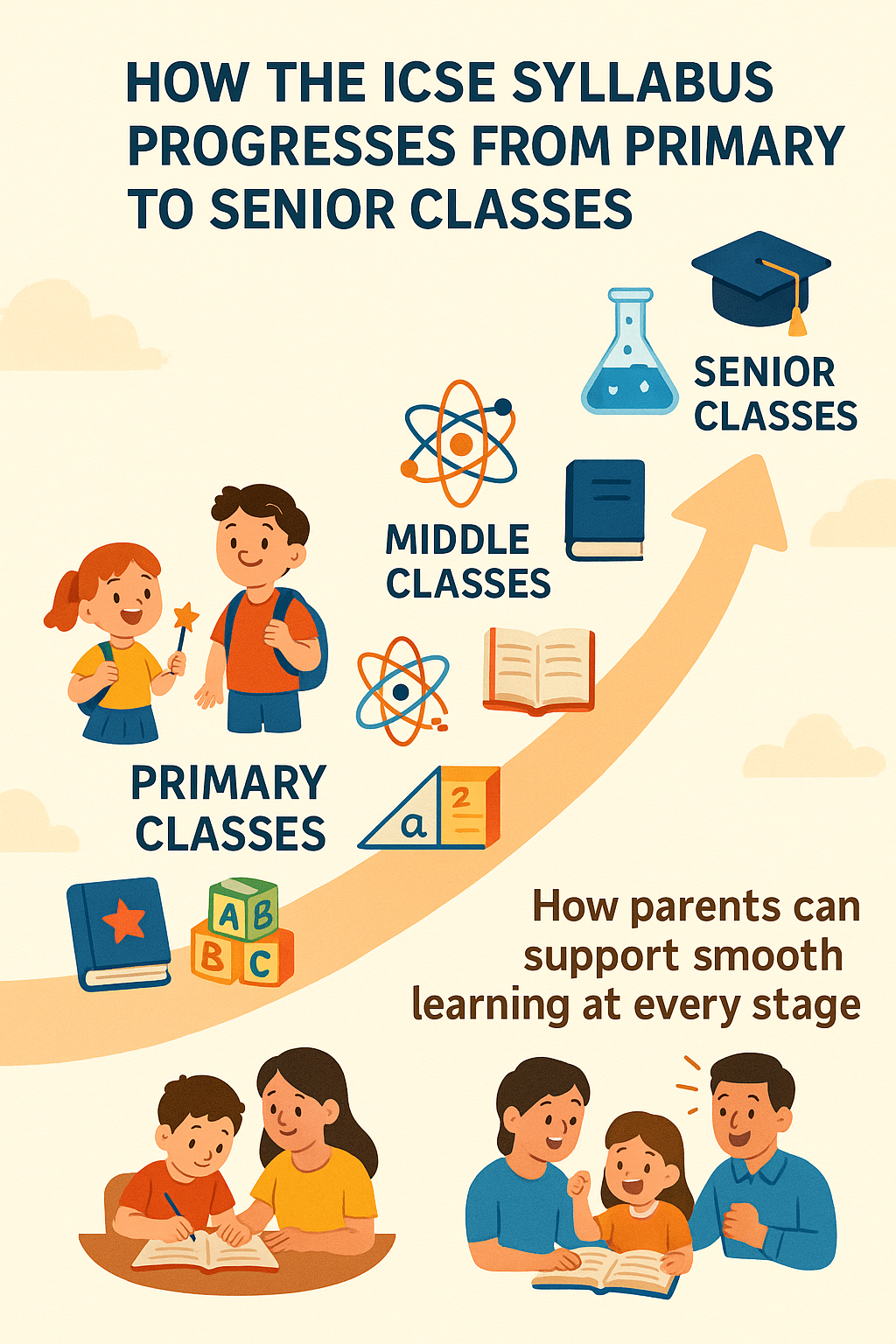
Understand how the ICSE syllabus progresses from primary to senior classes and how parents can support smooth...

Learn ICSE-specific methods parents can use to help children overcome exam anxiety, build confidence, and approach...
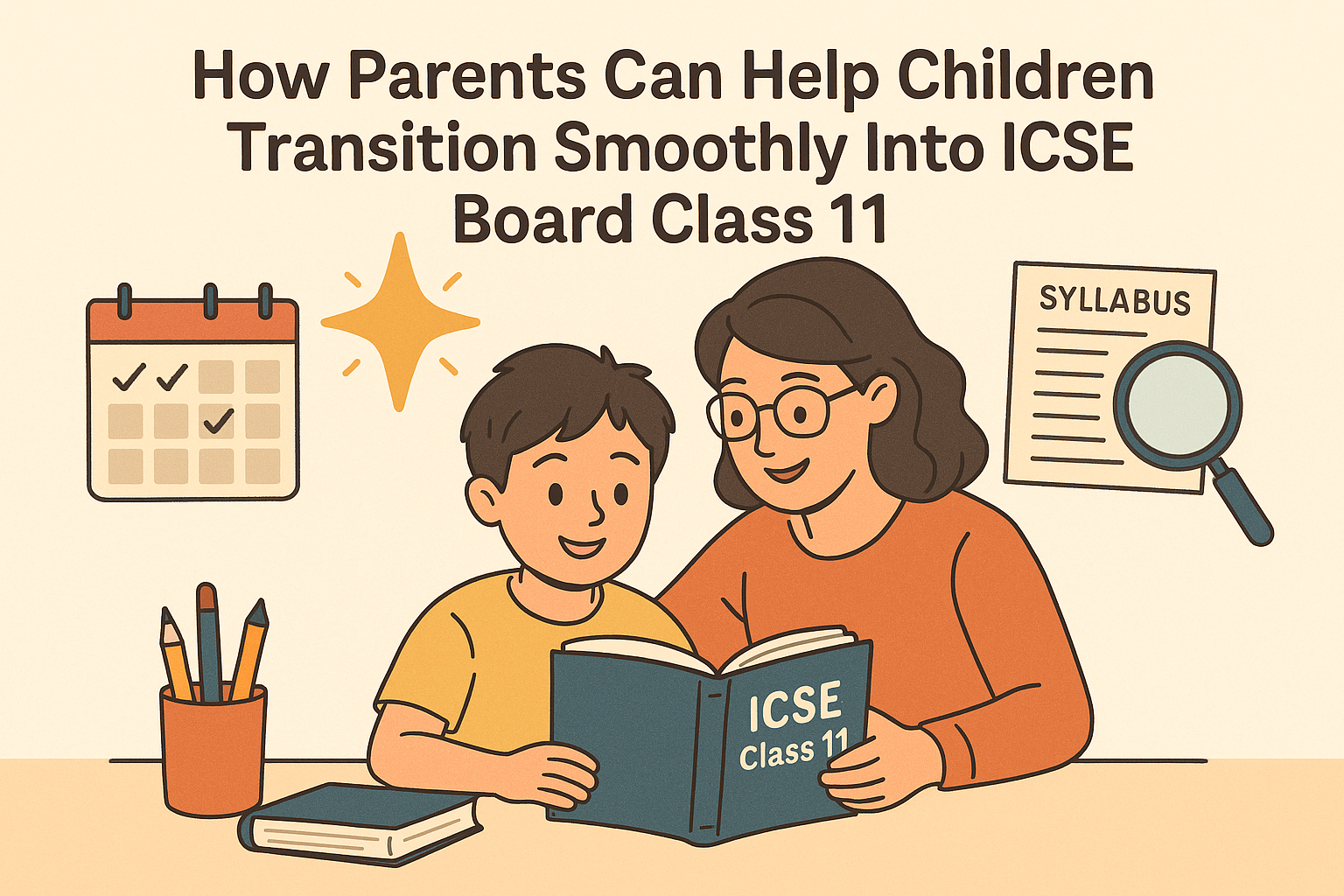
Learn how parents can support a smooth transition into ICSE Class 11 by building habits, confidence, and clarity...
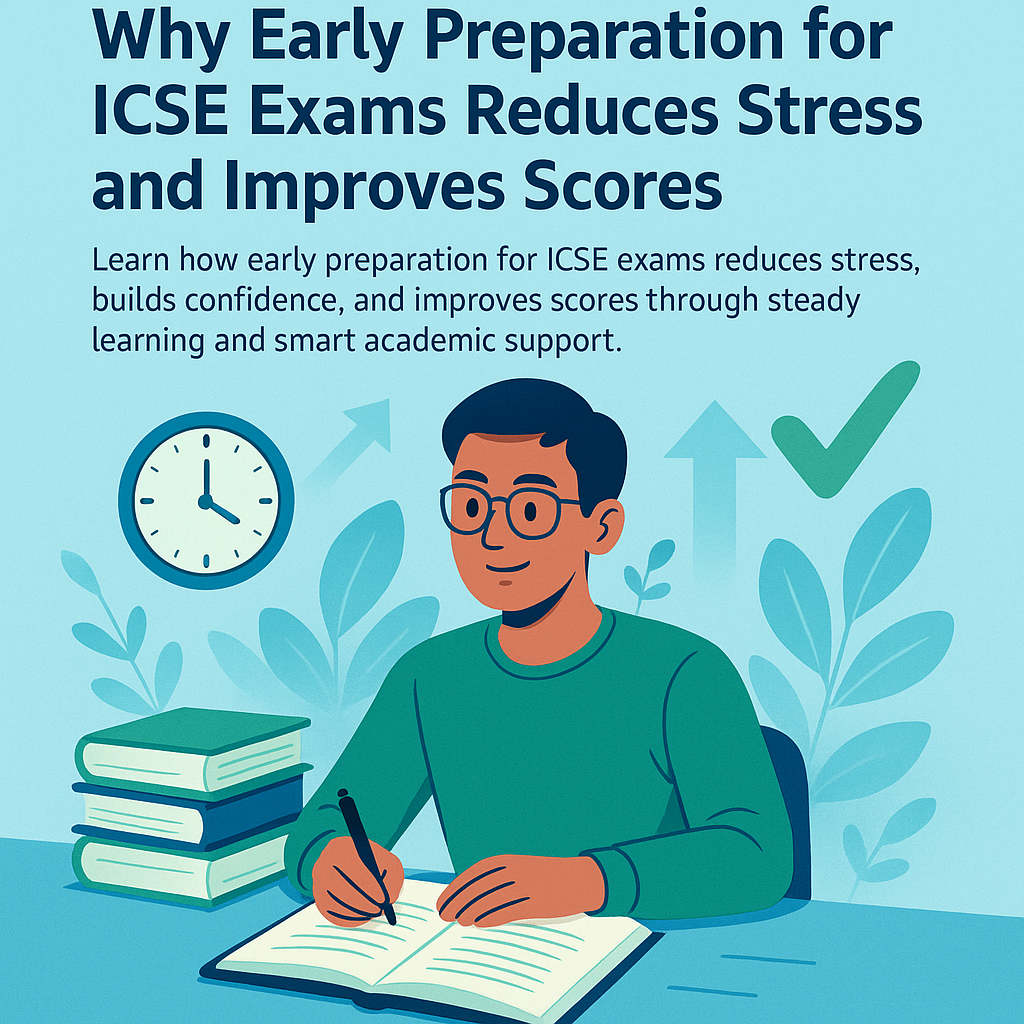
Learn how early preparation for ICSE exams reduces stress, builds confidence, and improves scores through steady...

Learn how to use ICSE textbooks and supplementary guides effectively without overwhelming students, while building...

Discover what ICSE topper strategies reveal about effective parental support and how parents can guide learning...

Understand why ICSE students are excelling in competitive exams and how the ICSE curriculum builds strong concepts,...
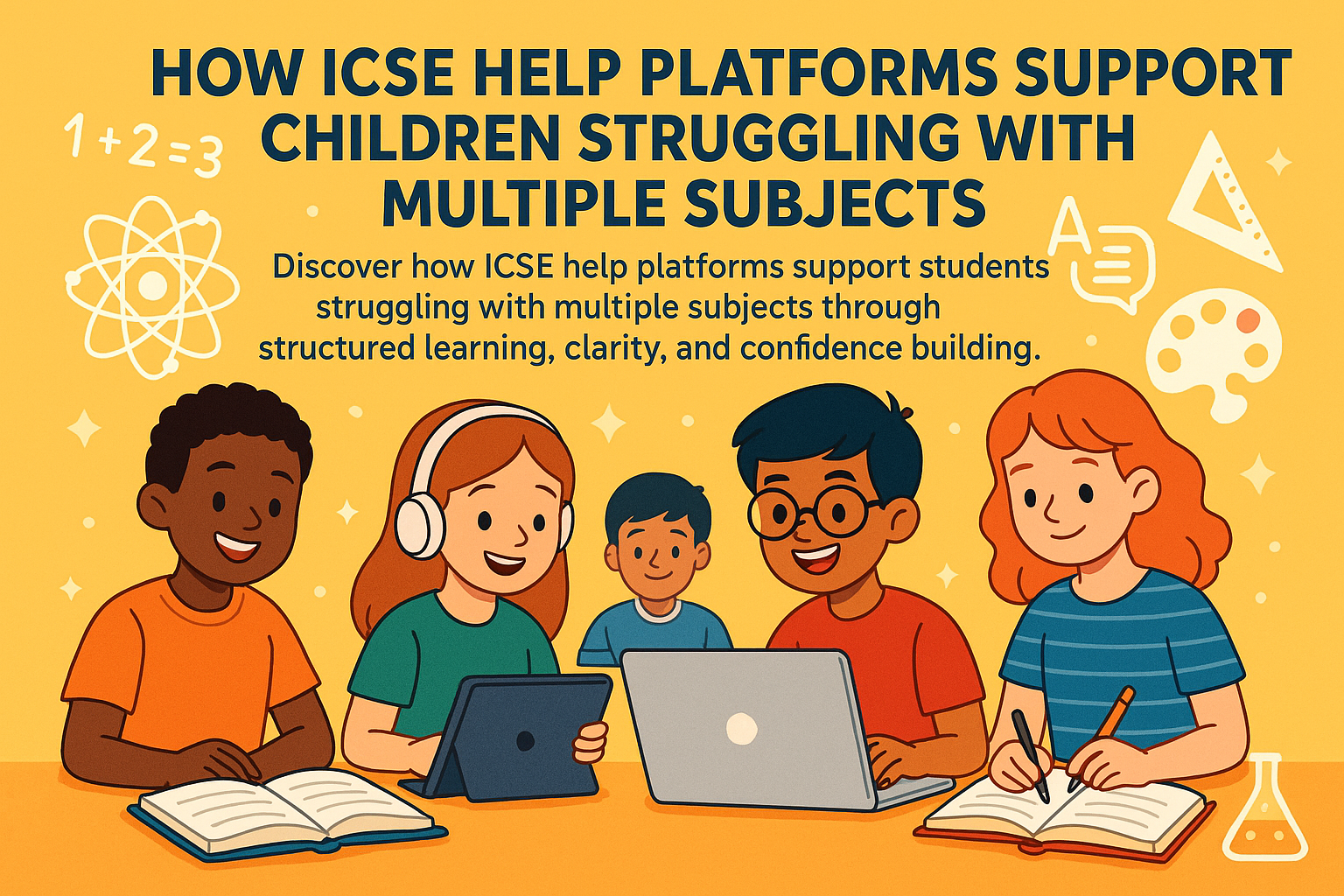
Discover how ICSE help platforms support students struggling with multiple subjects through structured learning,...
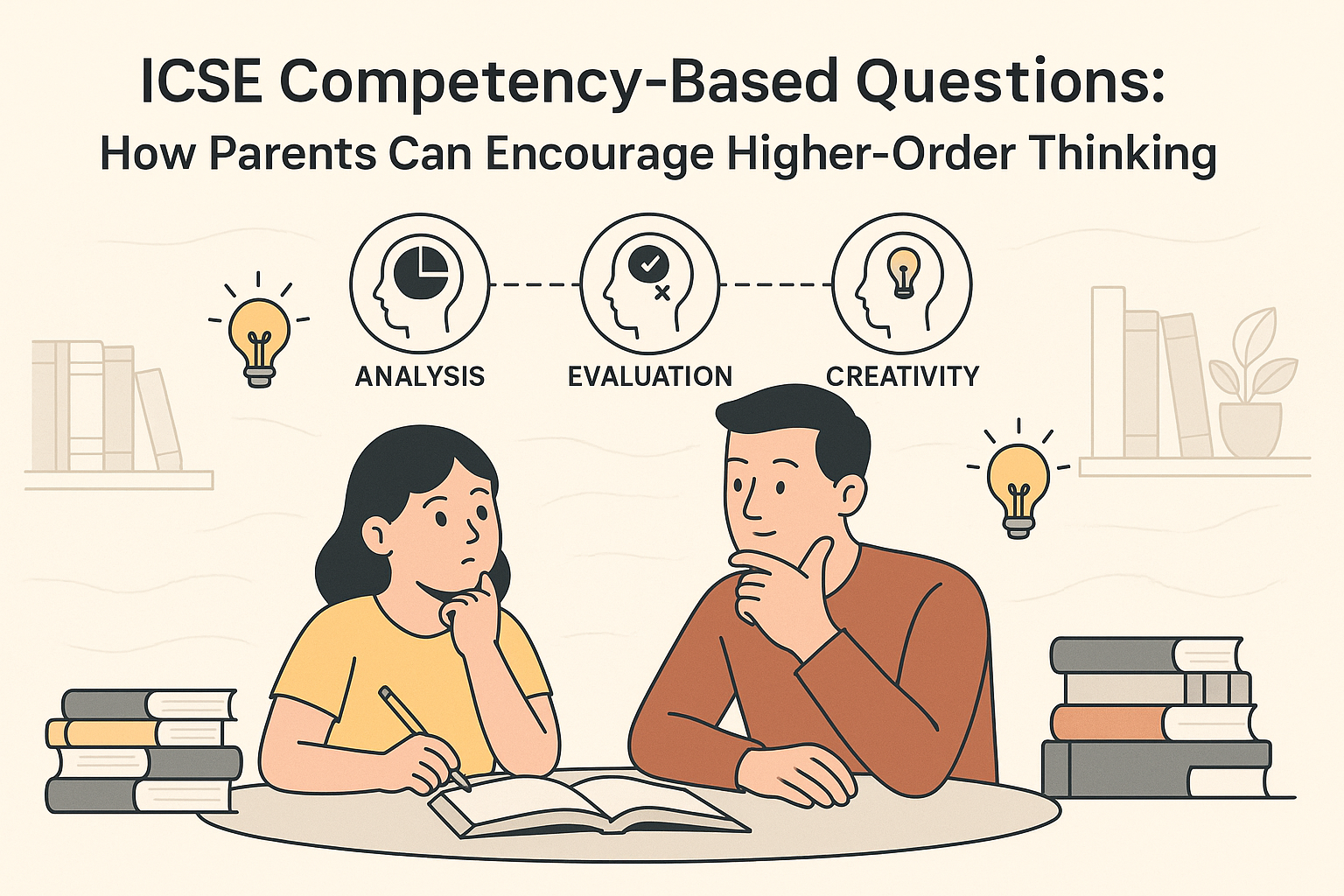
Learn how ICSE competency-based questions build higher-order thinking and how parents can support children through...
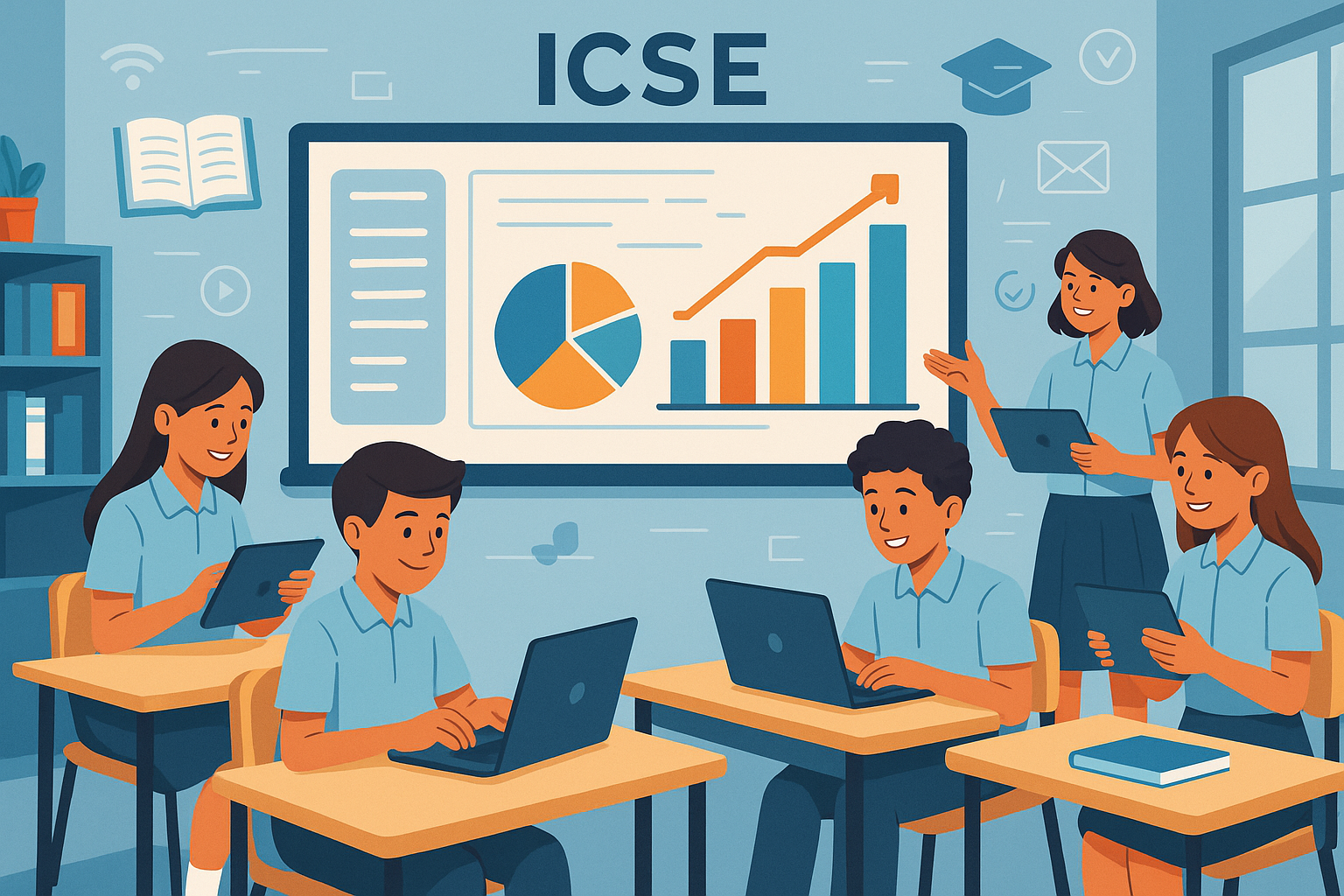
Explore how digital learning is reshaping ICSE schools by improving concept clarity, engagement, and academic...

Learn how to build strong self-study habits at home using ICSE help resources that improve understanding, confidence...
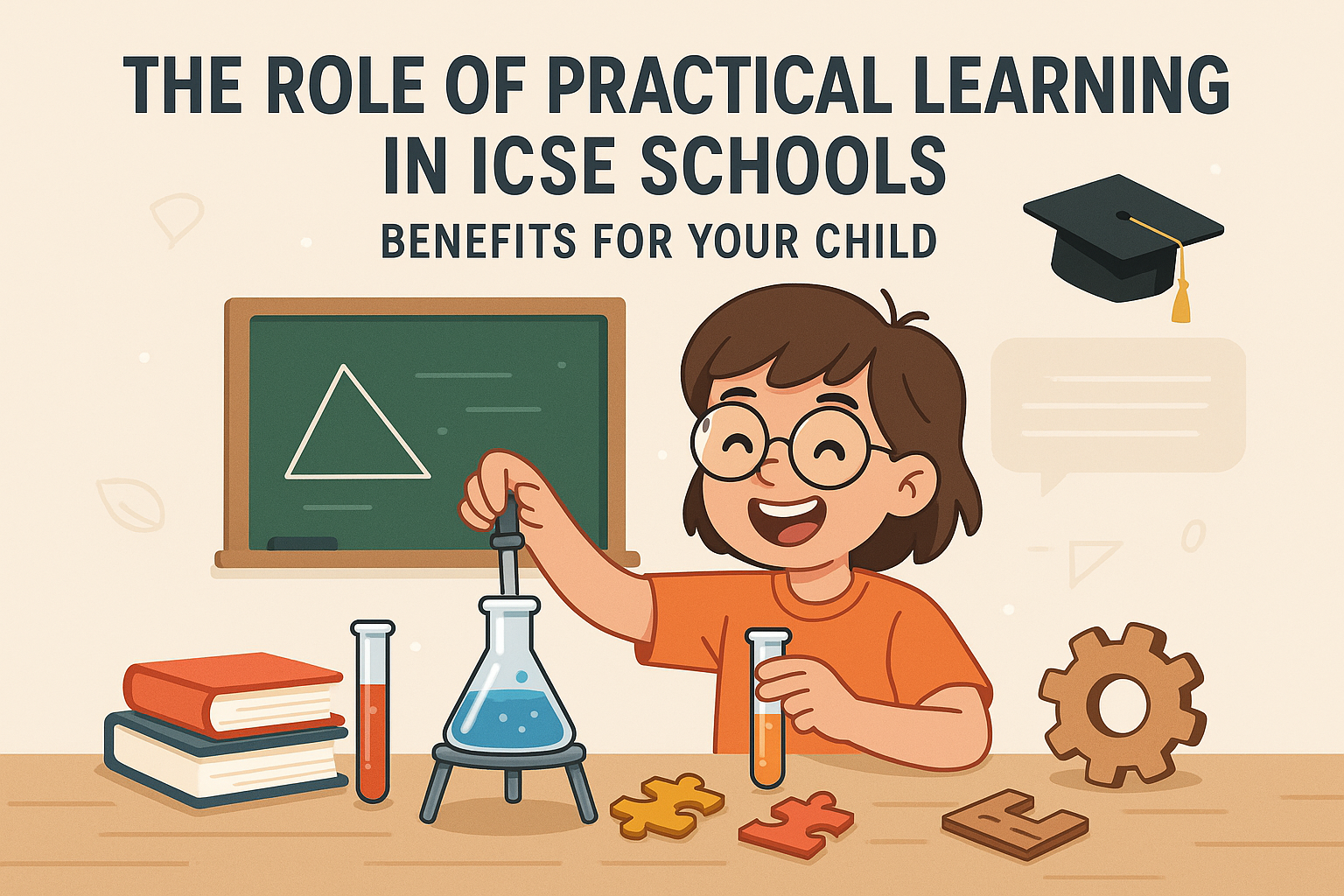
Understand how practical learning in ICSE schools builds clarity, confidence and real world skills that prepare...
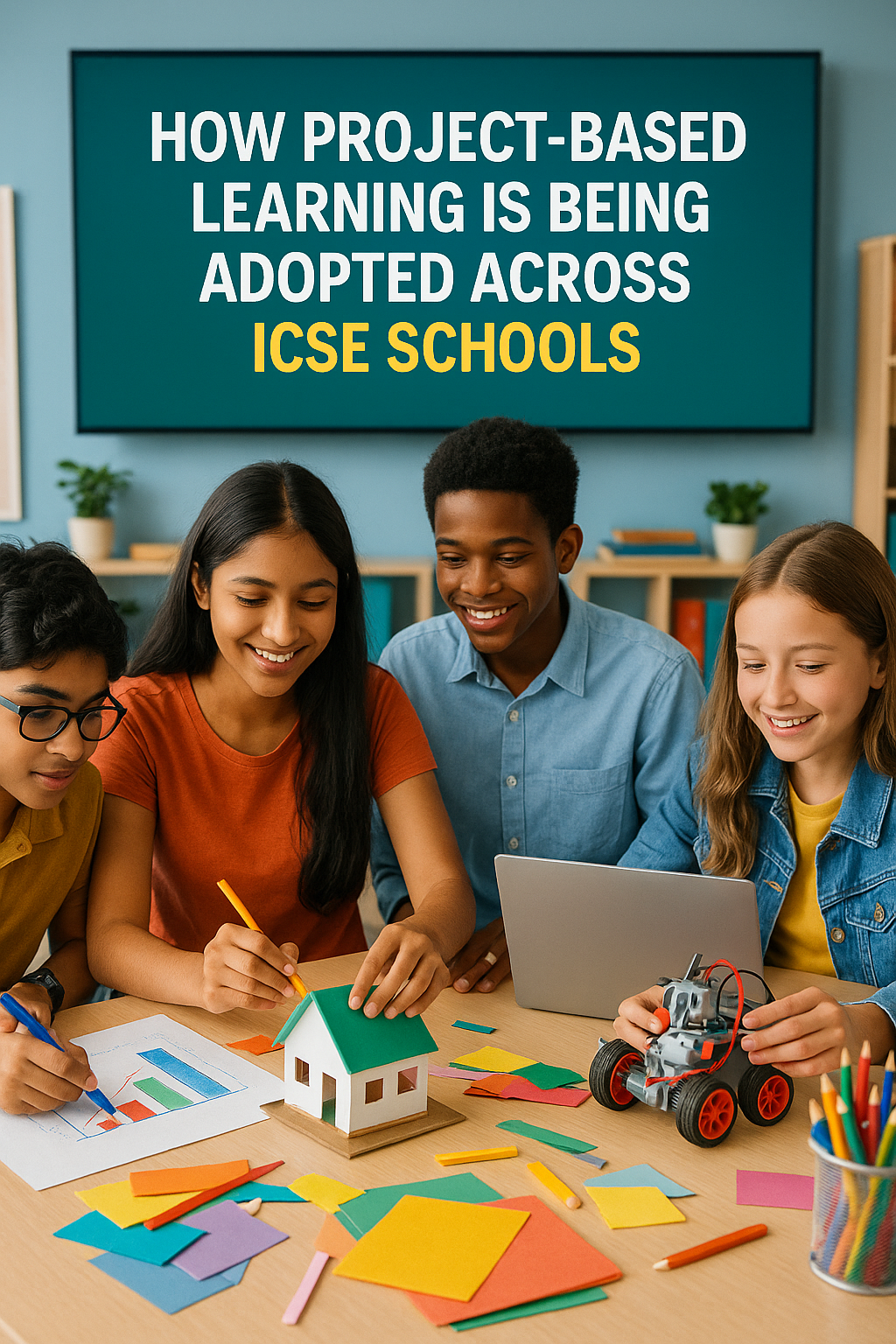
Learn how project-based learning is transforming ICSE classrooms and helping students build real-world skills...
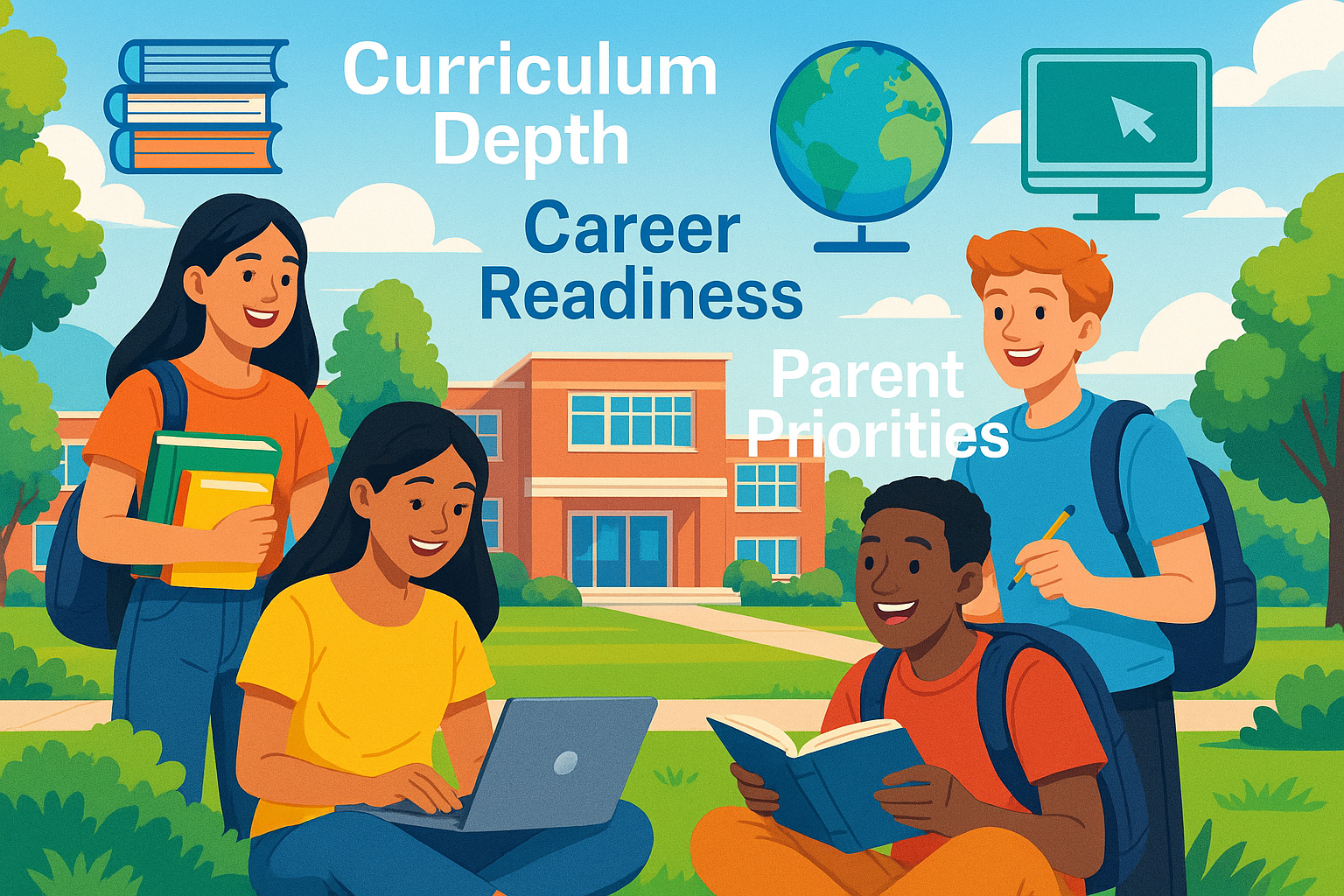
Explore why ICSE schools are gaining popularity in tier-2 cities and how curriculum depth, career readiness and...
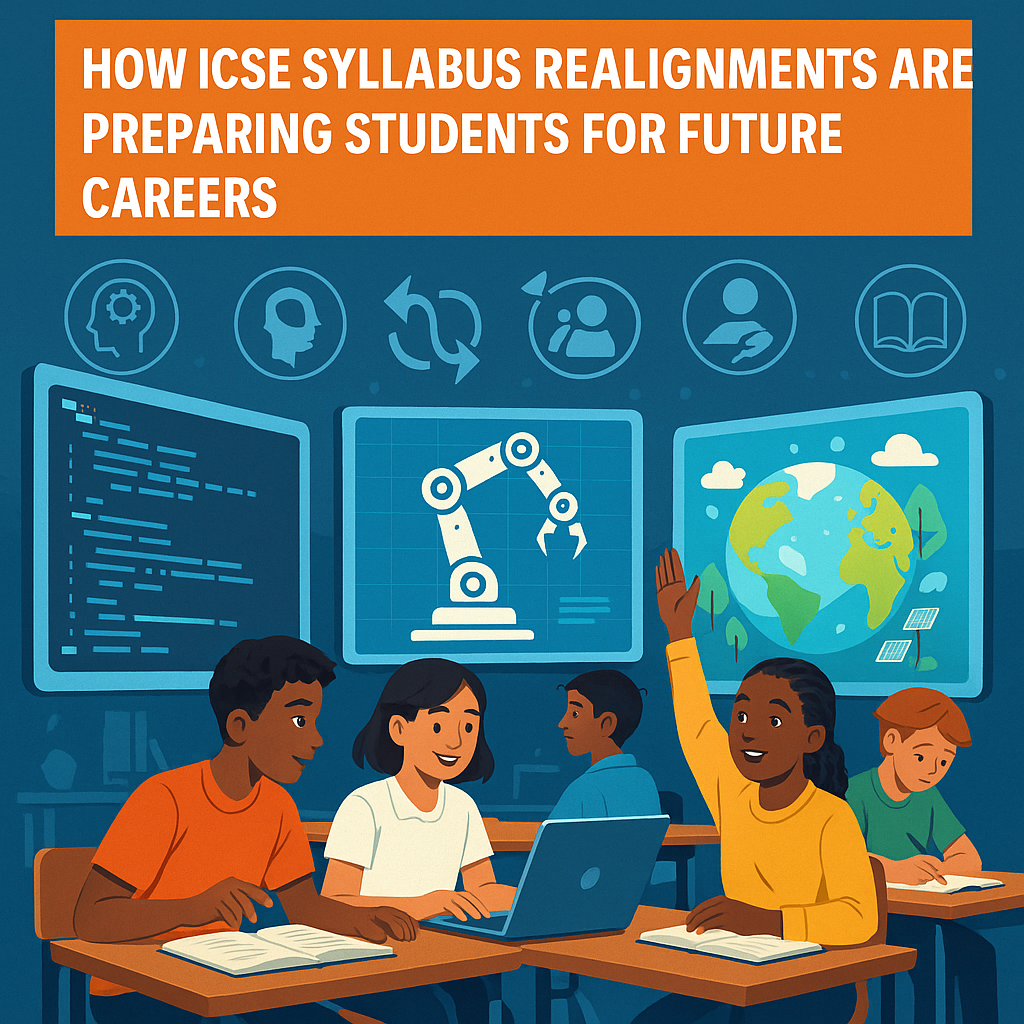
Explore how recent ICSE syllabus realignments are equipping students with future-ready skills, career adaptability...
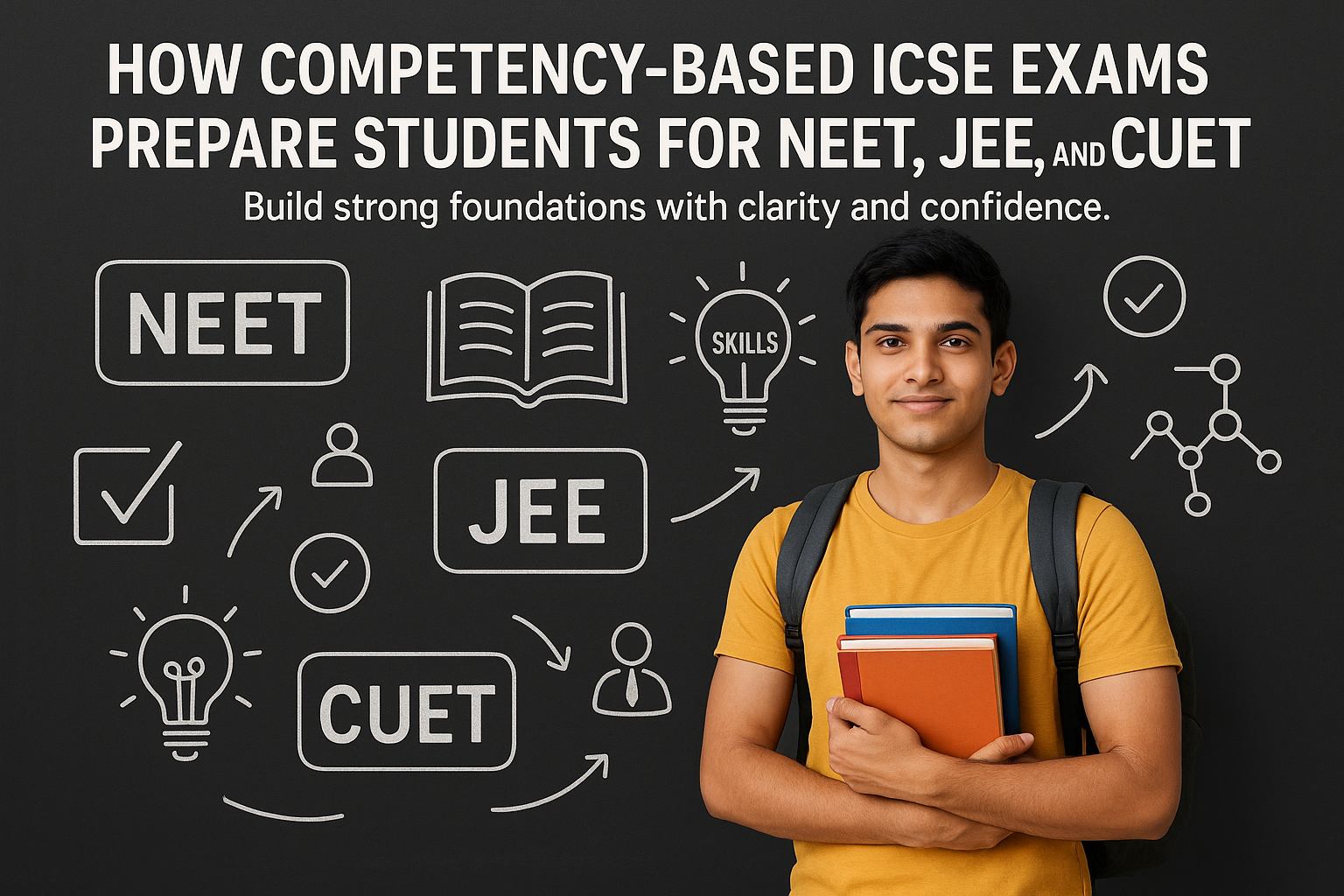
Understand how competency-based ICSE exams build strong foundations that prepare students for NEET, JEE and CUET...
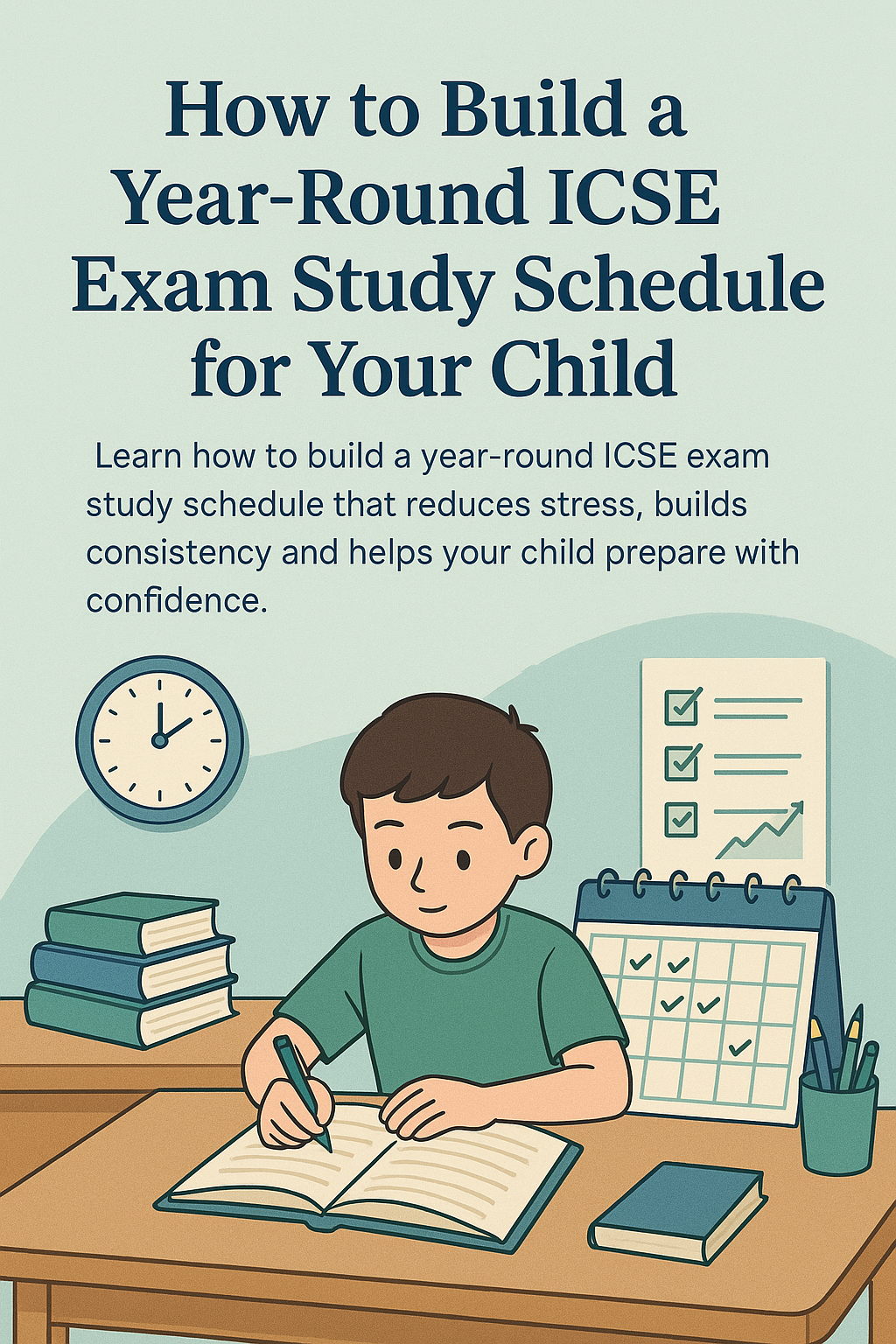
Learn how to build a year-round ICSE exam study schedule that reduces stress, builds consistency and helps your...
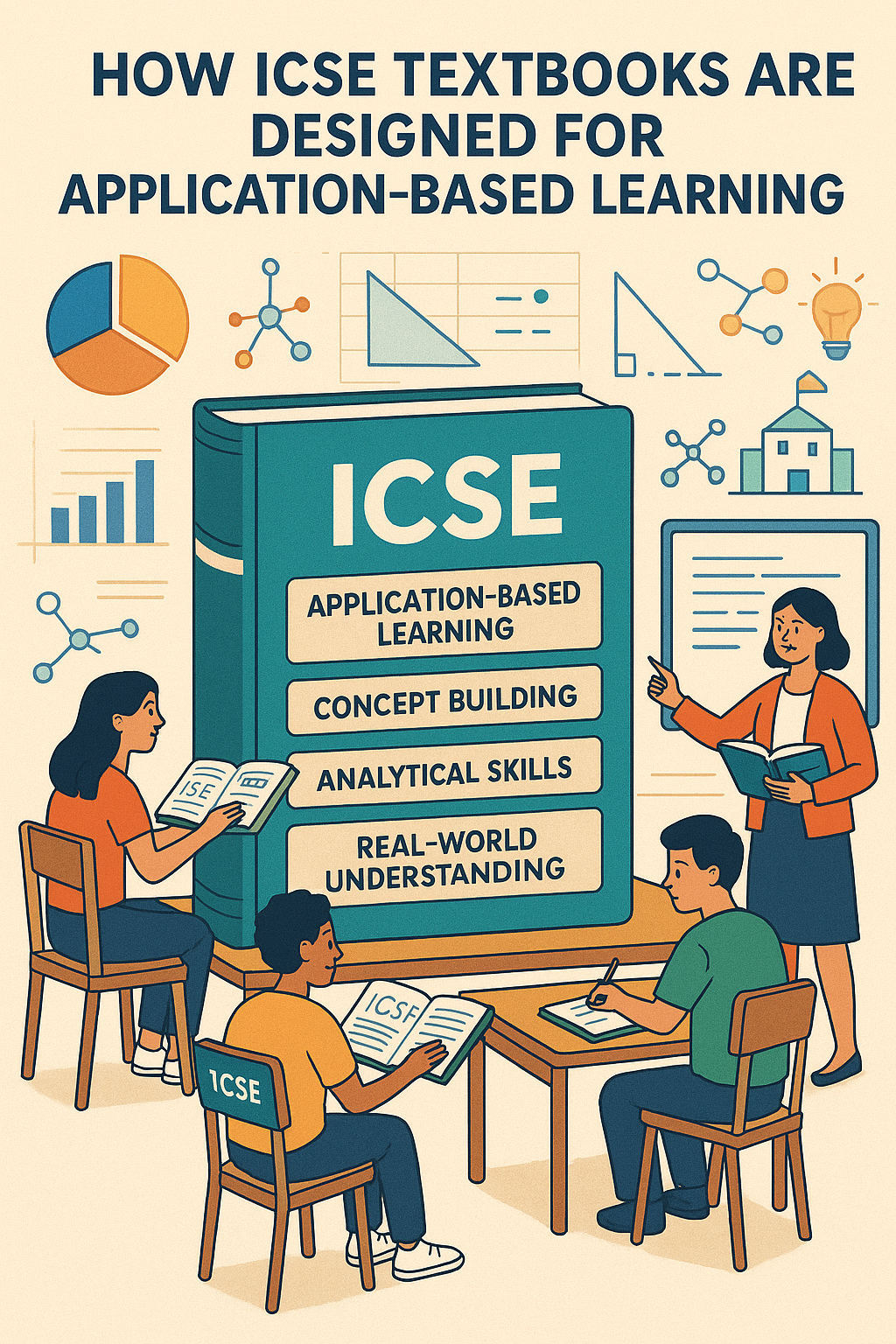
Understand how ICSE textbooks support application-based learning and help students build strong concepts, analytical...

Explore why parents of high-performing students and toppers choose the ICSE board for senior classes and how its...
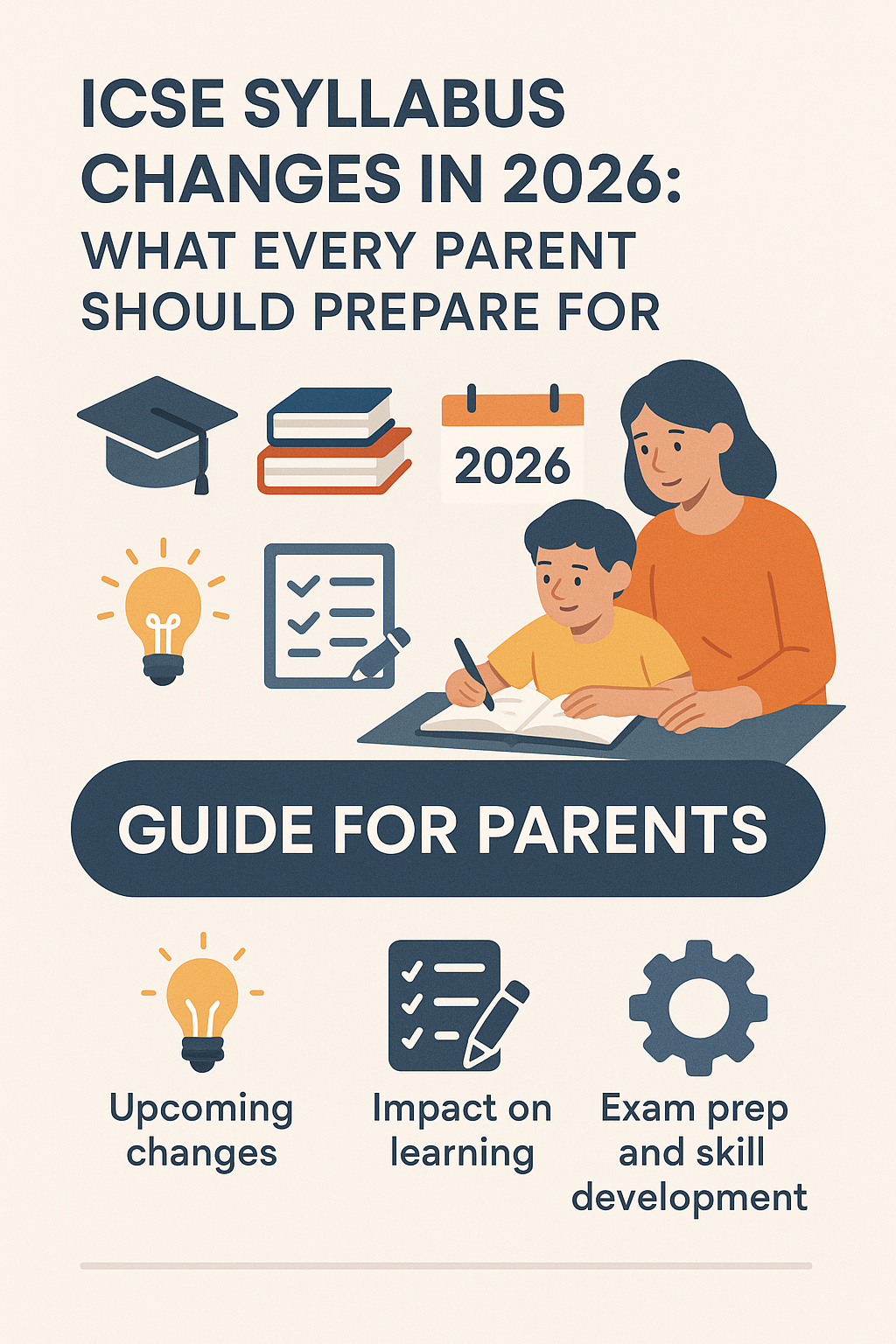
A clear guide for parents on the upcoming ICSE syllabus changes in 2026 and how these updates impact learning, exam...

Explore the best ICSE schools in Mumbai that balance academics and co-curricular growth while supporting holistic...
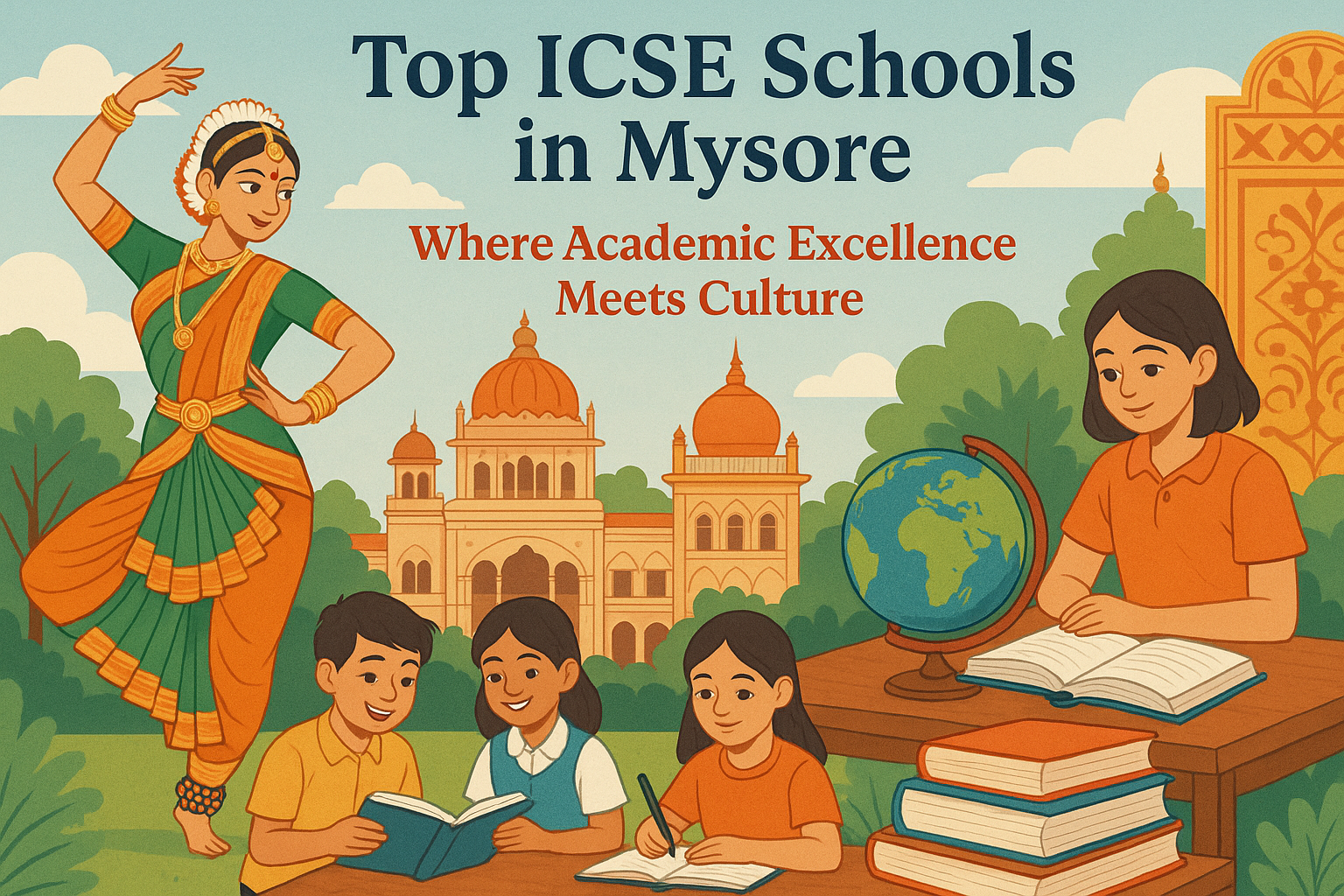
Discover the best ICSE schools in Mysore that blend strong academics with the city’s cultural traditions, while...

Discover the best ICSE schools in Lucknow that follow child-centric learning, strong academics and holistic...
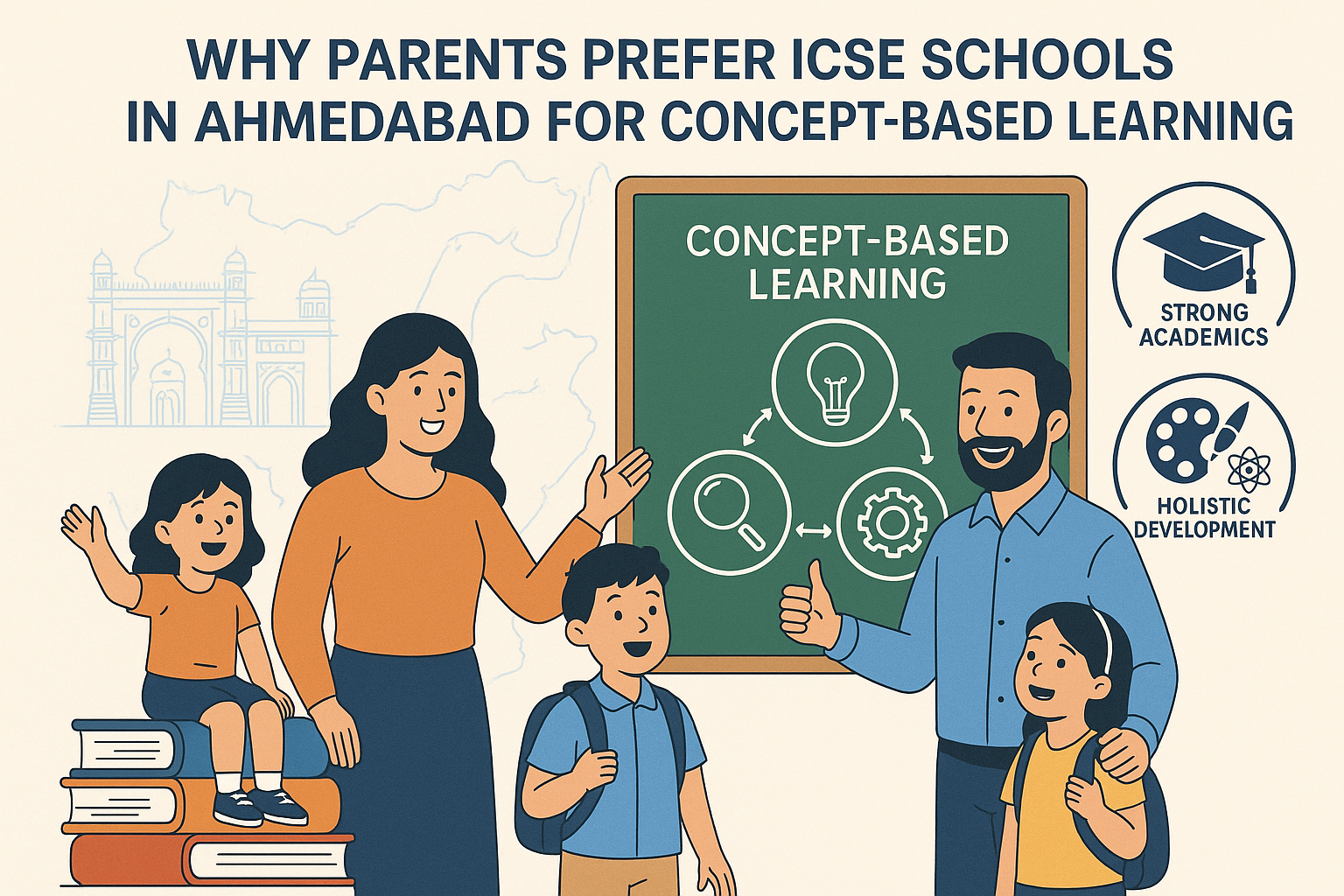
Parents prefer ICSE schools in Ahmedabad for concept-based learning, strong academics and holistic development....

Explore the best ICSE schools in Madurai that offer balanced education, strong academics, and holistic development...

Explore the best ICSE schools in Pune that offer balanced education, strong academics and holistic development for...

Explore the top ICSE schools in Dehradun known for academic rigor, balanced learning and strong foundations that...

Explore the best ICSE schools in Chennai that offer strong academic foundations, holistic growth and a syllabus that...

Explore the top-rated ICSE schools in Hyderabad known for strong academics, balanced learning and a modern approach...
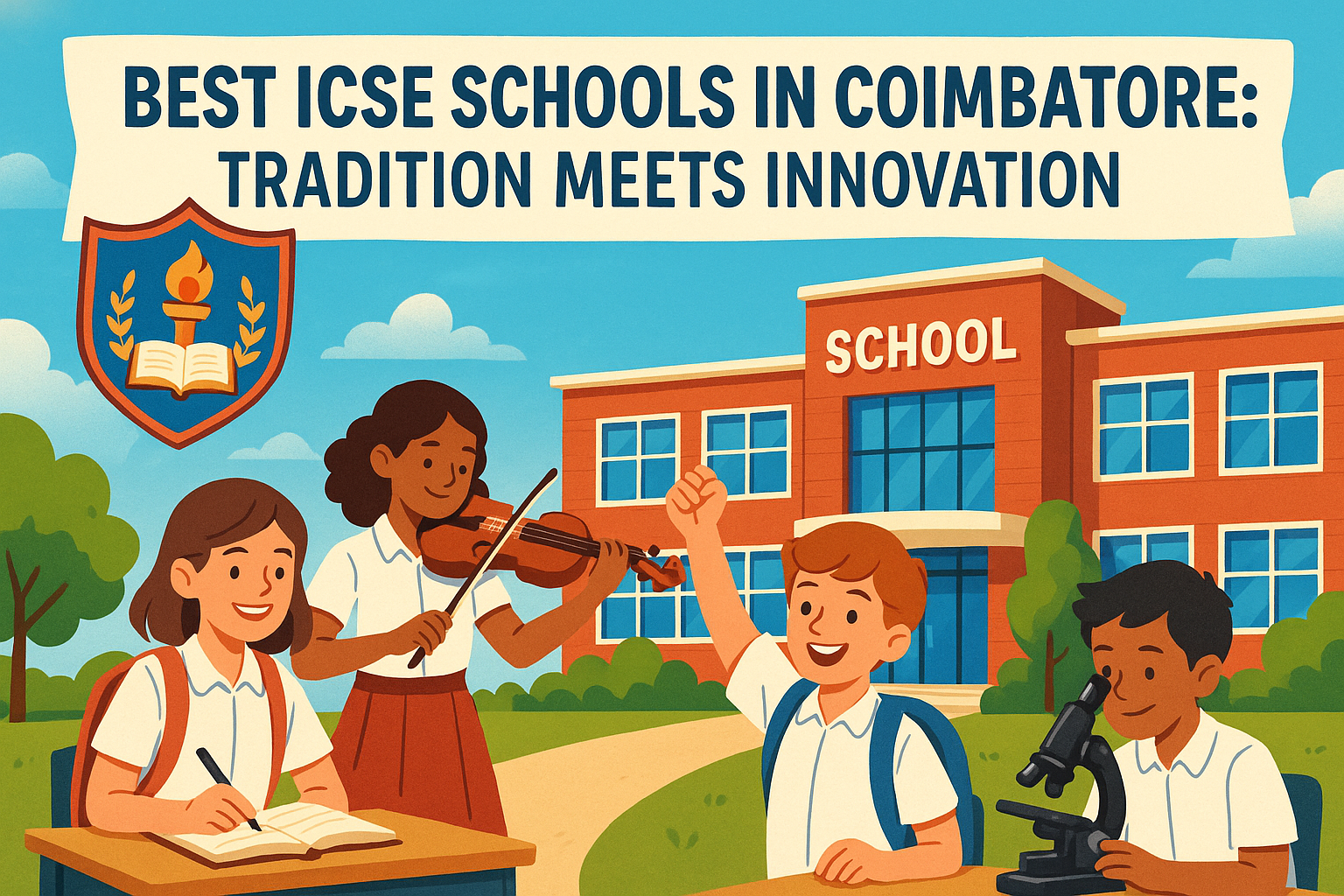
Explore the best ICSE schools in Coimbatore that blend tradition with innovation through strong academics, modern...

Discover the top ICSE schools in Bangalore that focus on academics, skills, creativity and holistic growth to help...
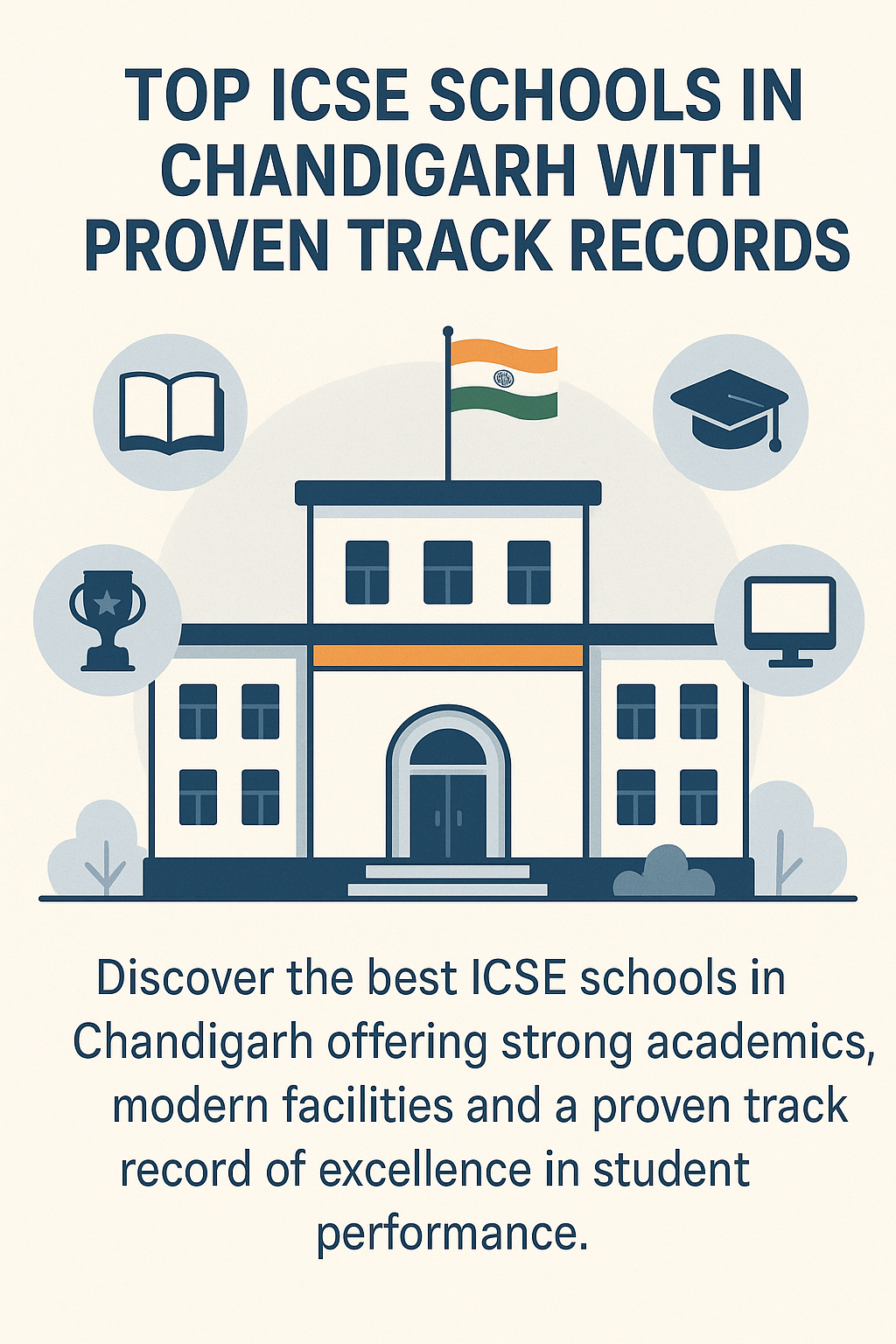
Discover the best ICSE schools in Chandigarh offering strong academics, modern facilities and a proven track record...

Explore the best ICSE schools in Kolkata known for academic strength, modern facilities and a strong focus on...
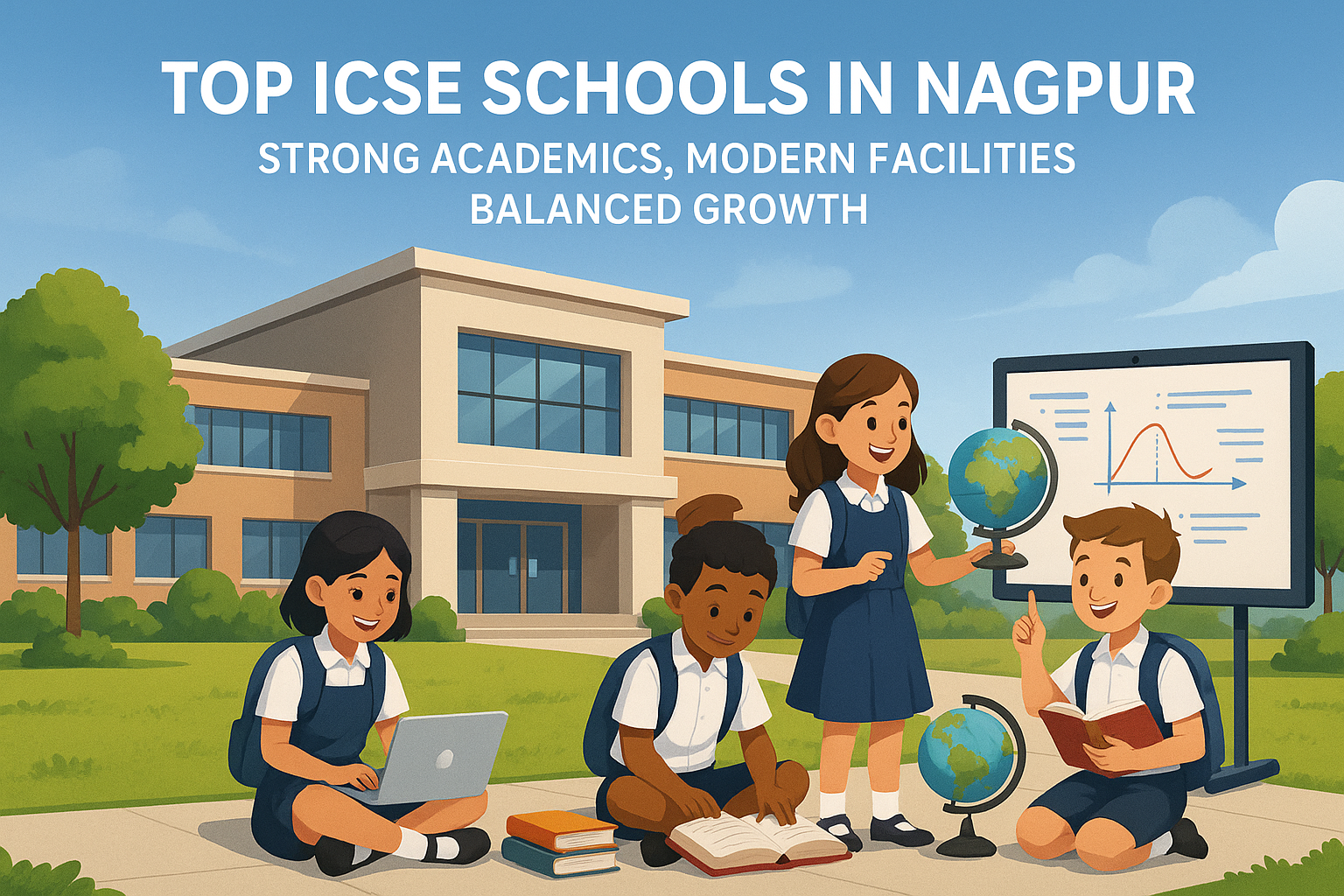
Explore the best ICSE schools in Nagpur offering strong academics, modern facilities and a balanced approach...
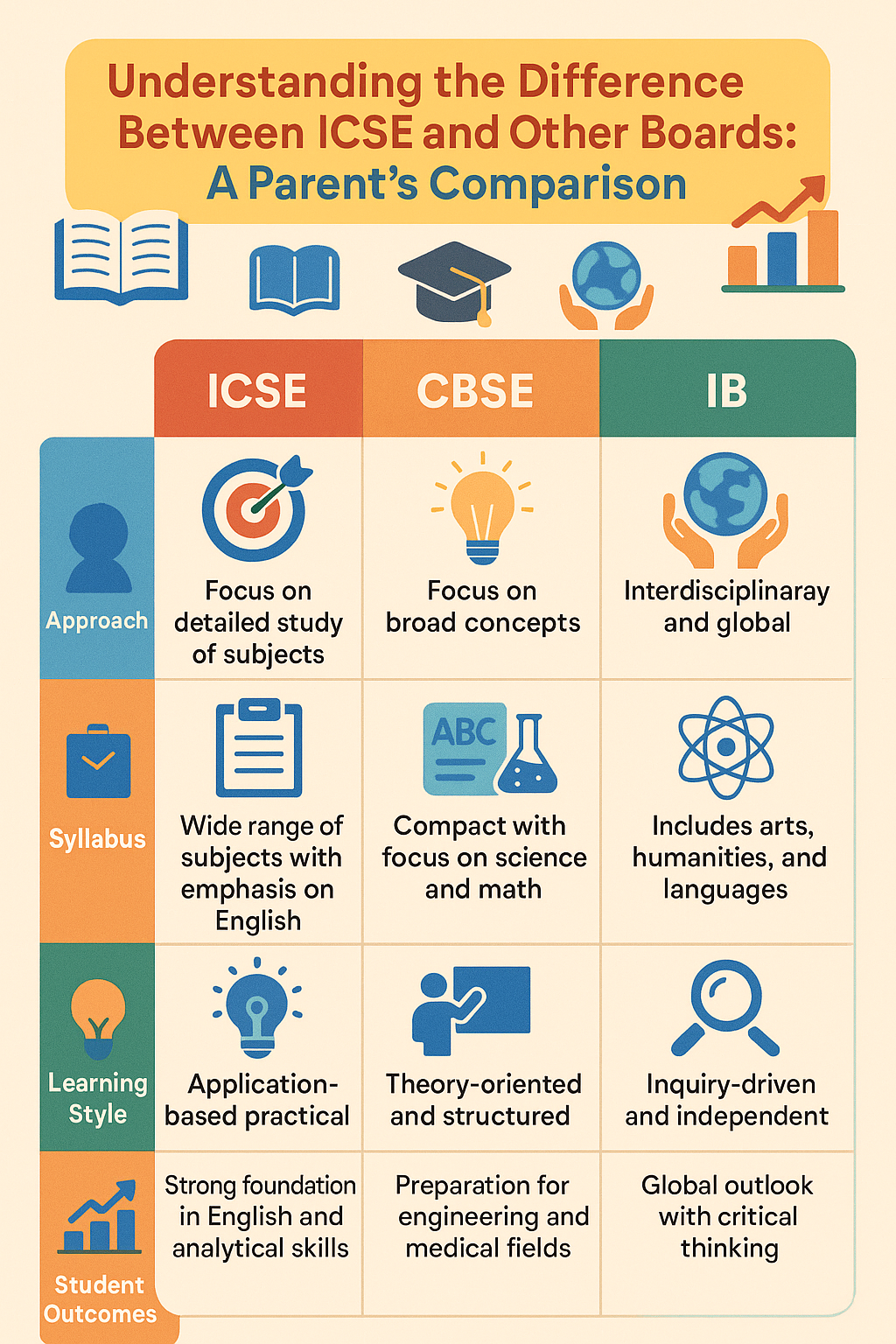
A clear comparison of ICSE, CBSE and IB boards to help parents understand differences in approach, syllabus,...
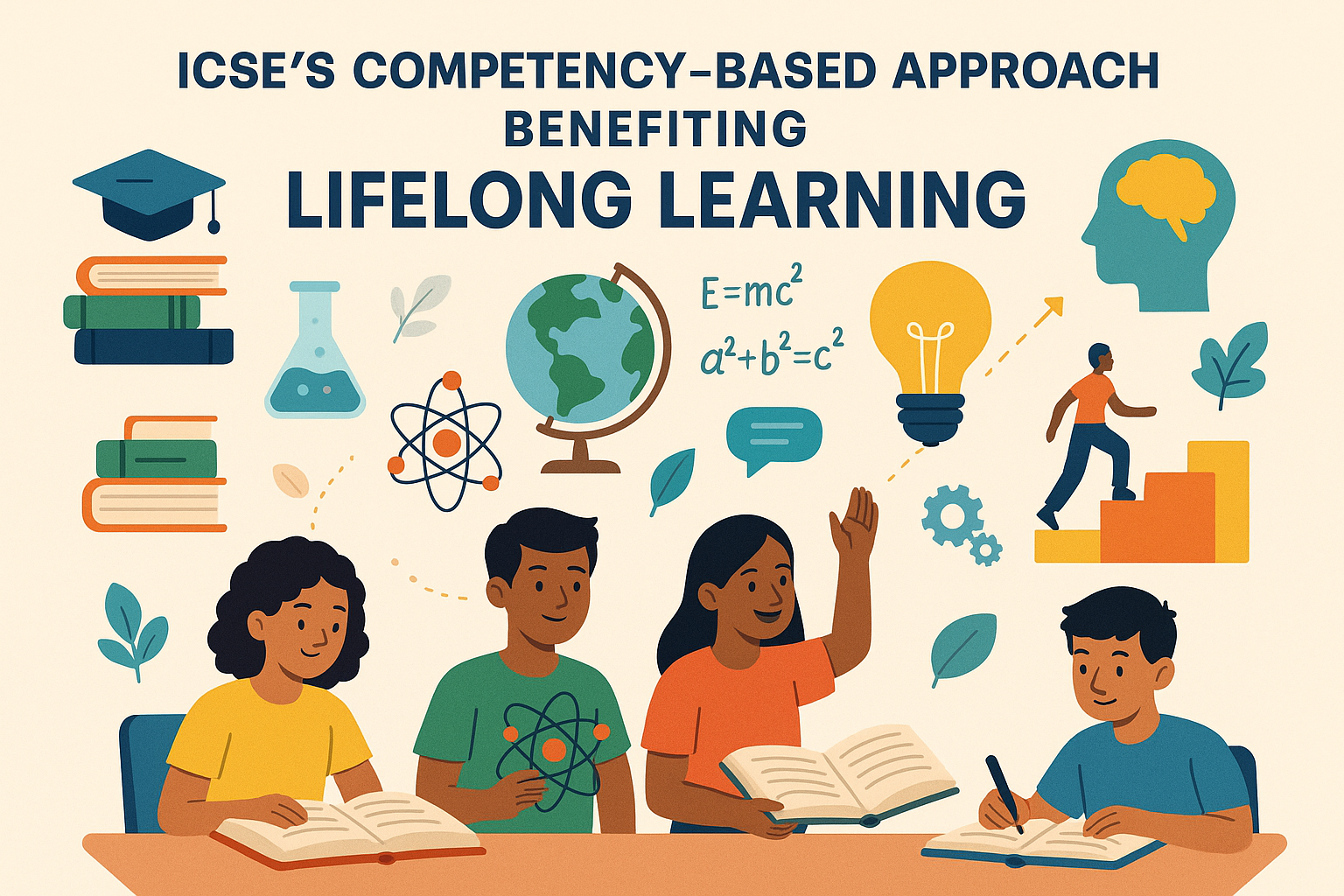
Explore how ICSE’s competency-based approach strengthens understanding, real-world thinking and lifelong learning...
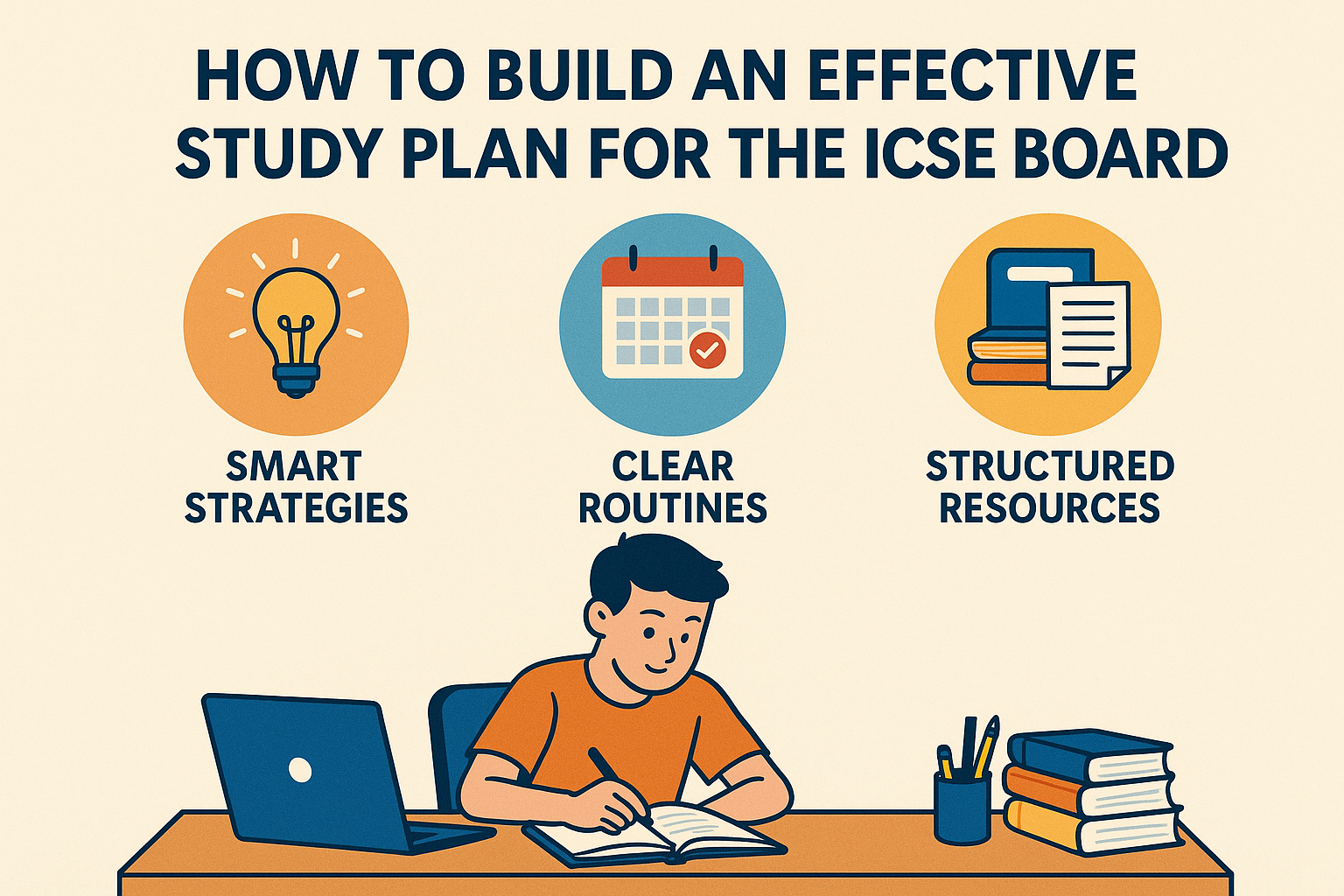
Learn how to build an effective ICSE study plan with smart strategies, clear routines and structured resources for...
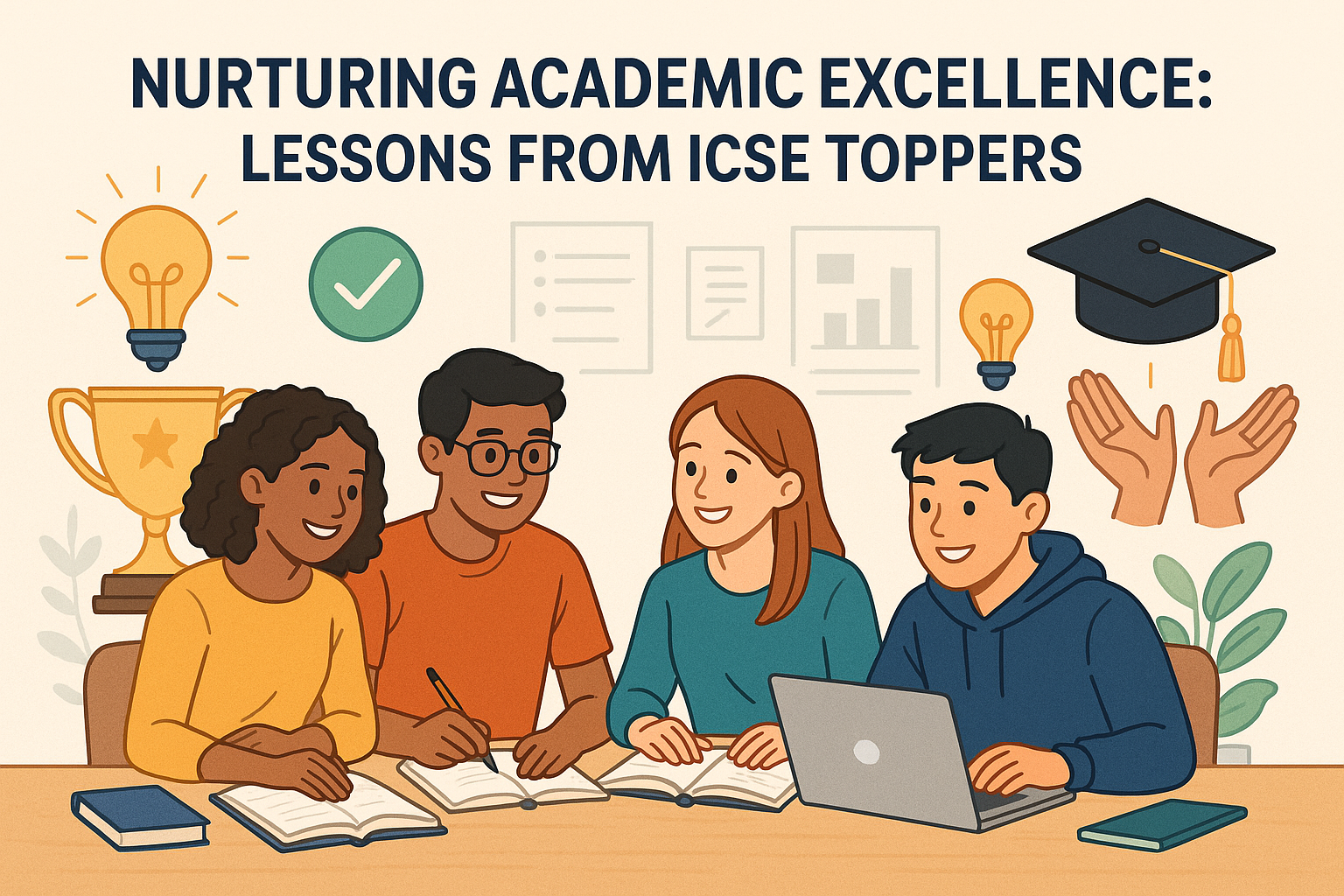
Learn how ICSE toppers study, stay consistent and master concepts. A complete guide for parents and students...
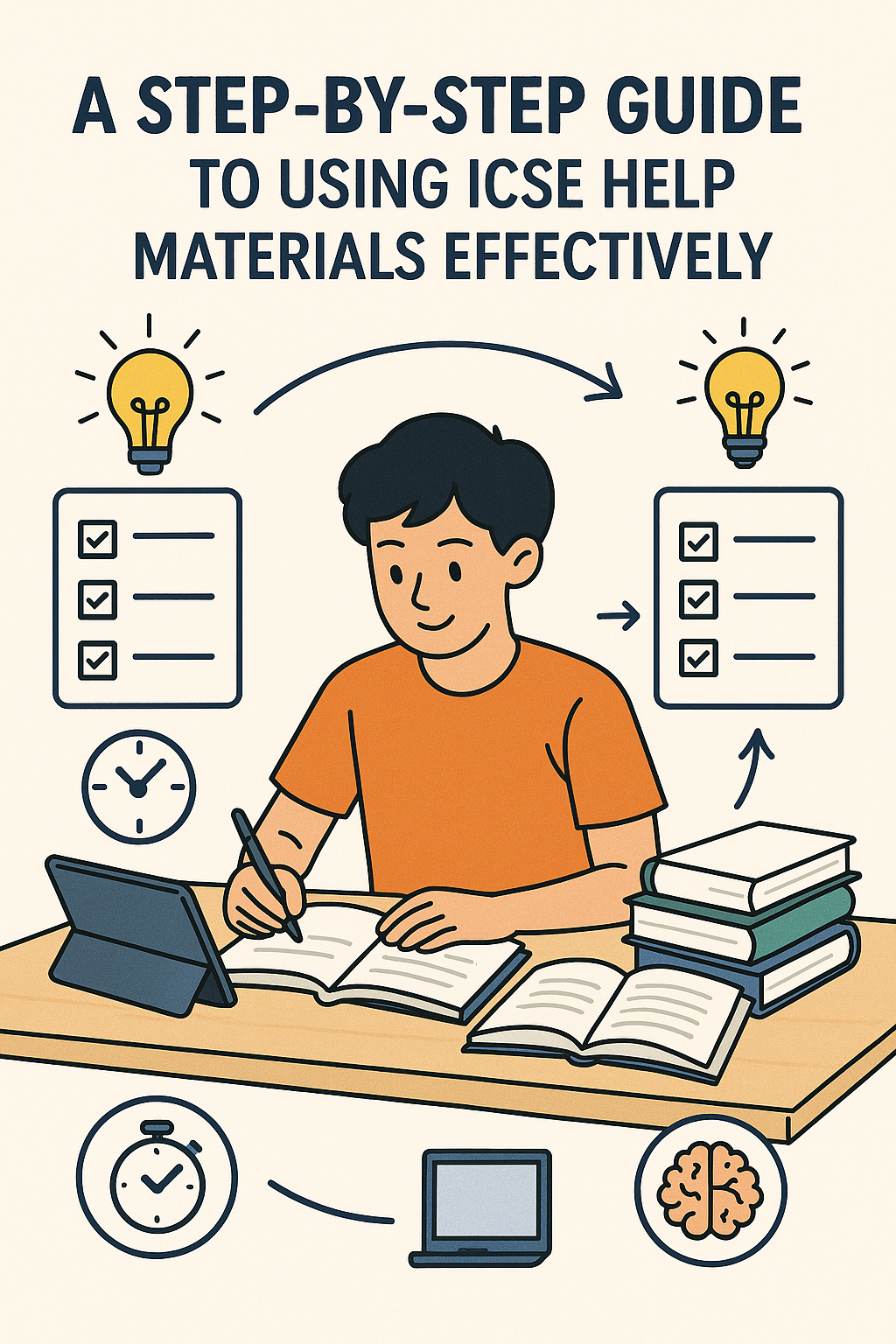
A complete step-by-step guide to using ICSE help materials effectively so students learn faster, stay organised and...
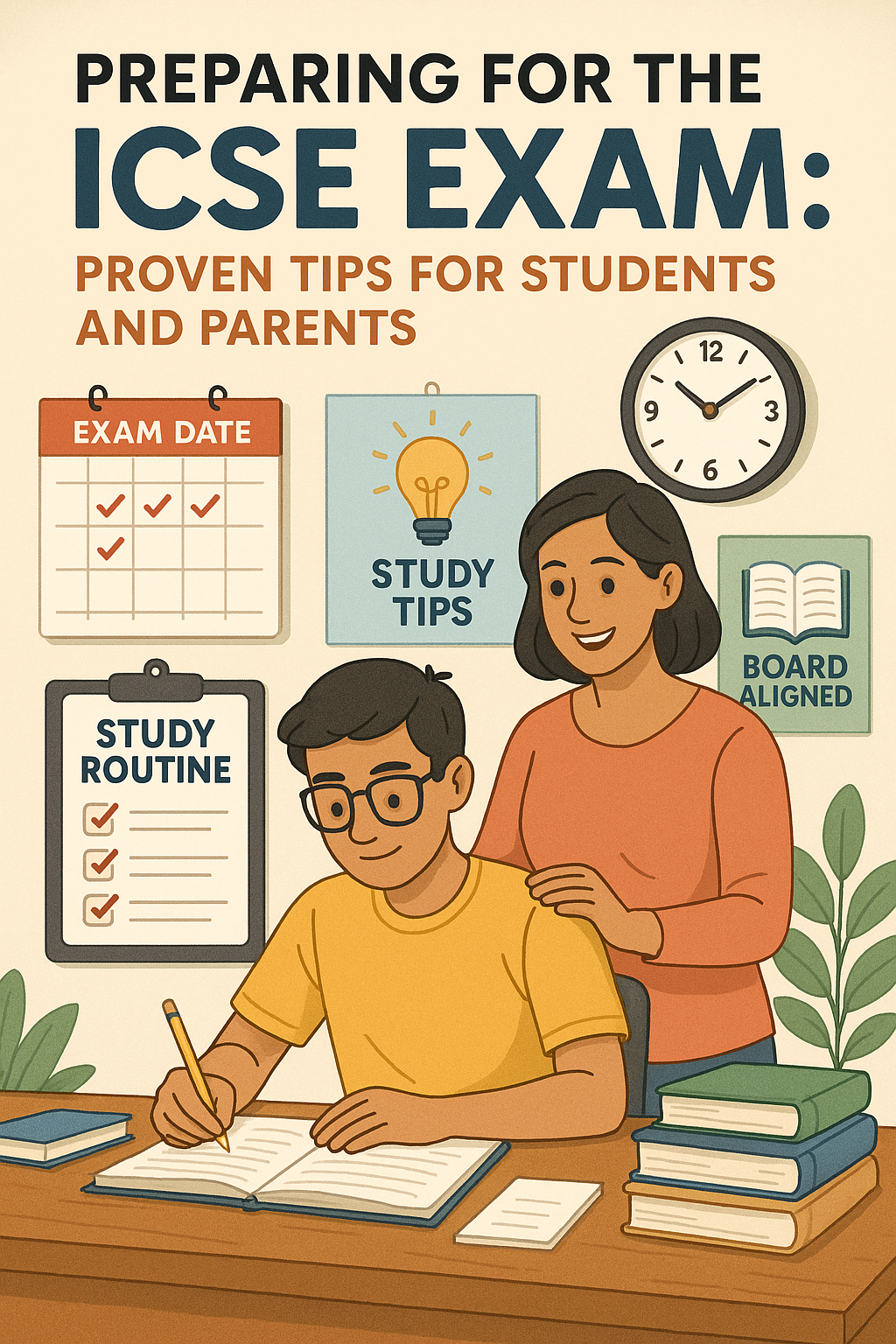
A complete guide for students and parents to prepare effectively for the ICSE exam with proven study strategies,...
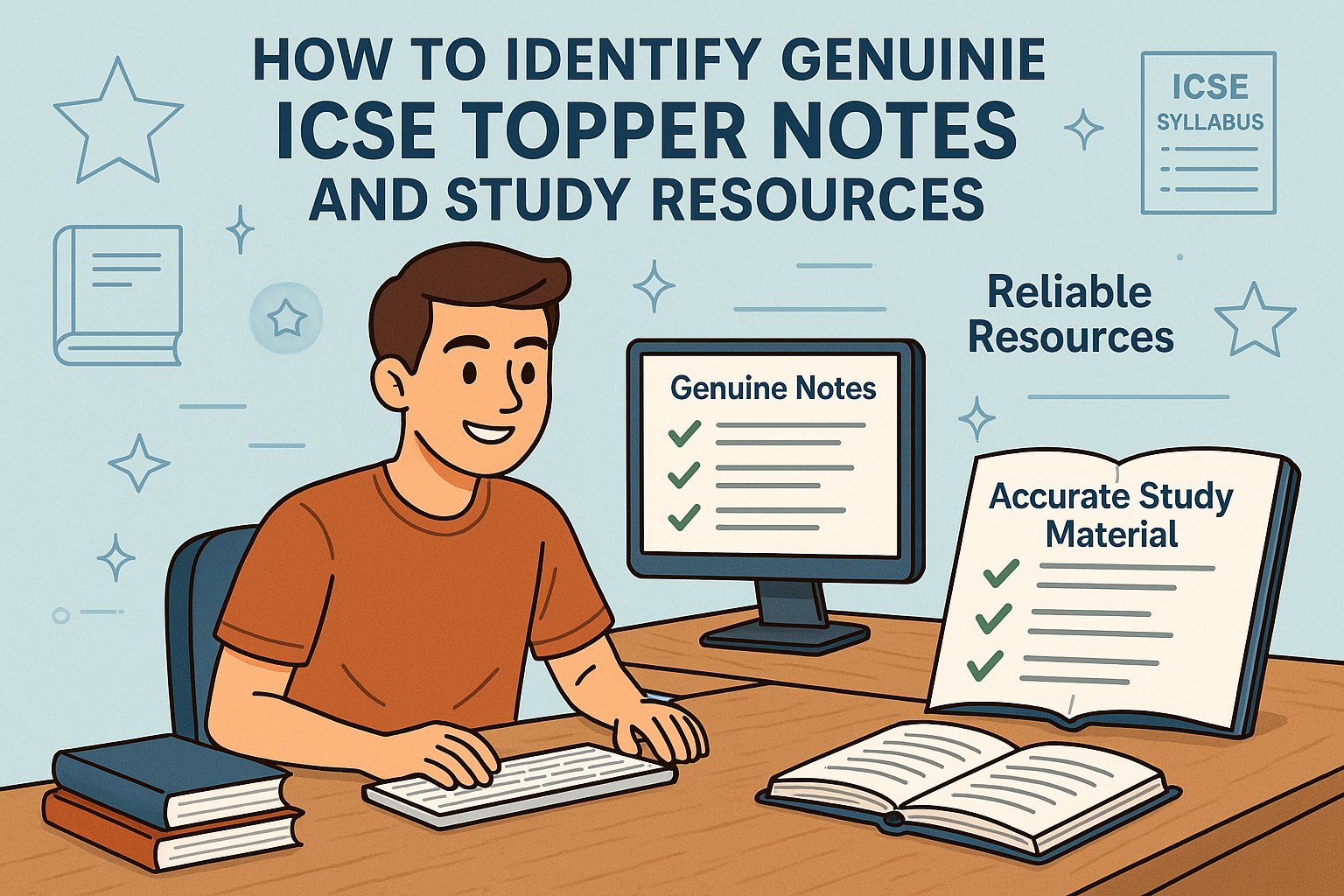
A detailed guide for parents and students to identify genuine ICSE topper notes, reliable resources and accurate...
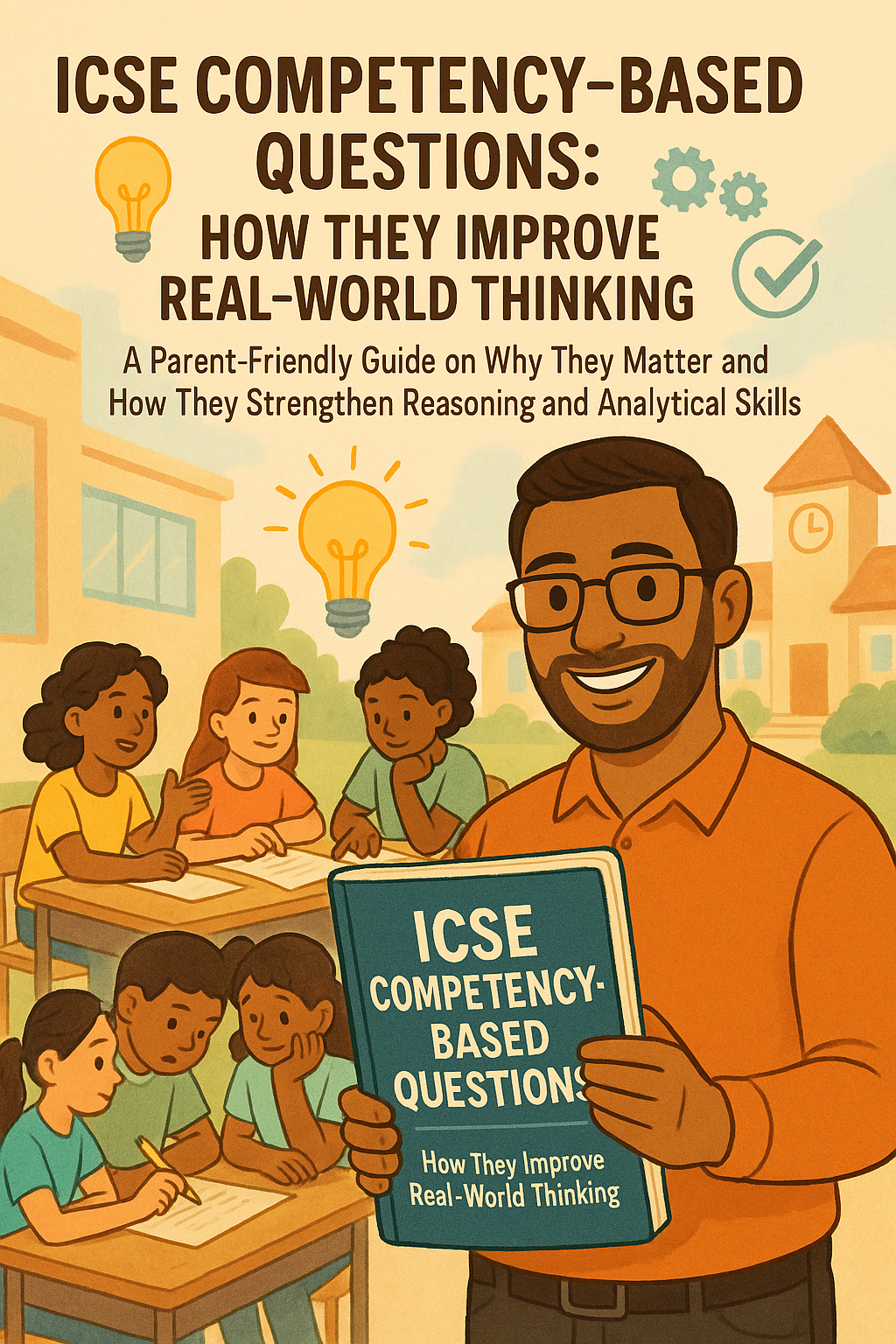
A parent-friendly guide to ICSE competency-based questions, why they matter and how they strengthen real-world...
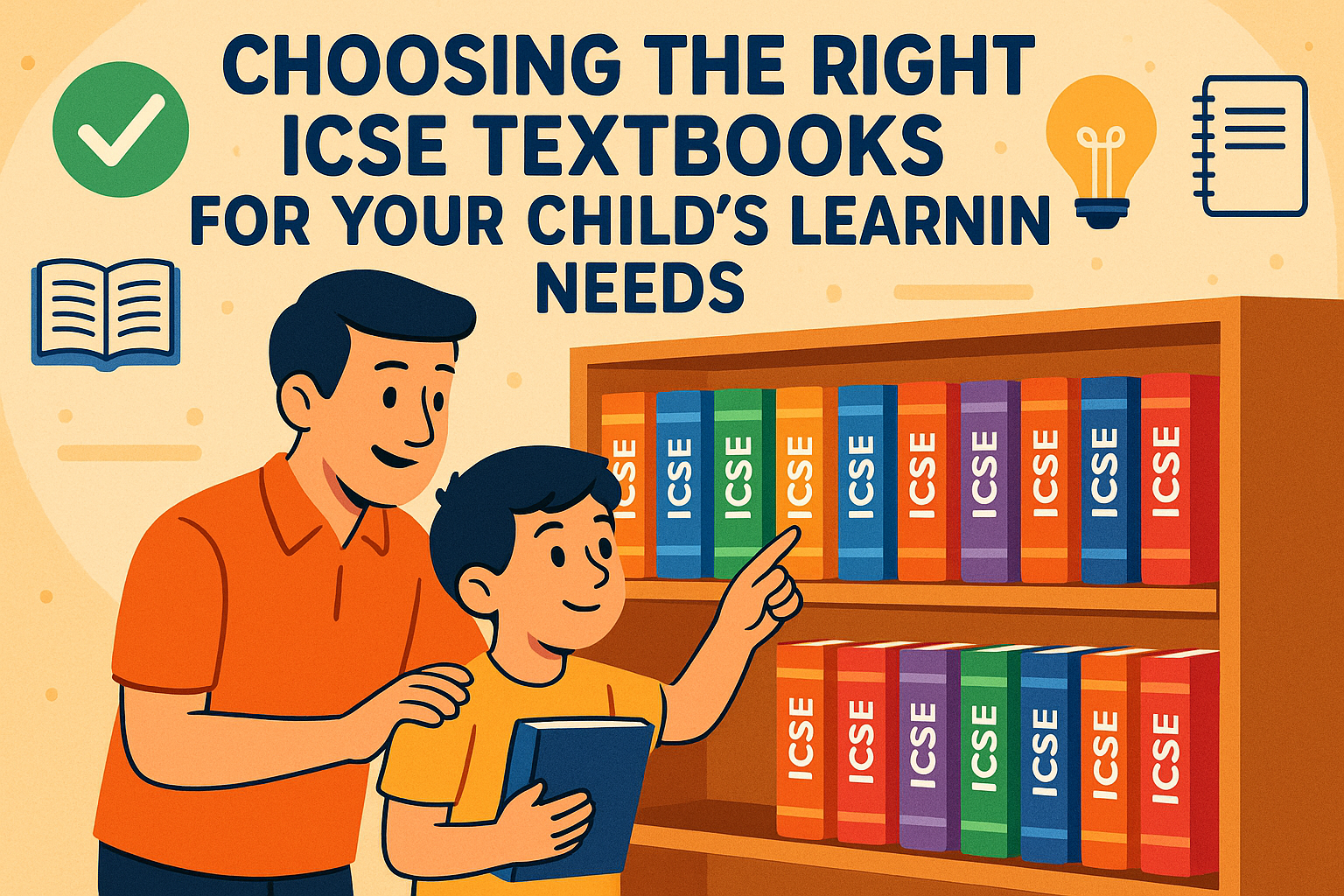
A complete guide to choosing the right ICSE textbooks for your child, with tips on syllabus alignment, clarity,...
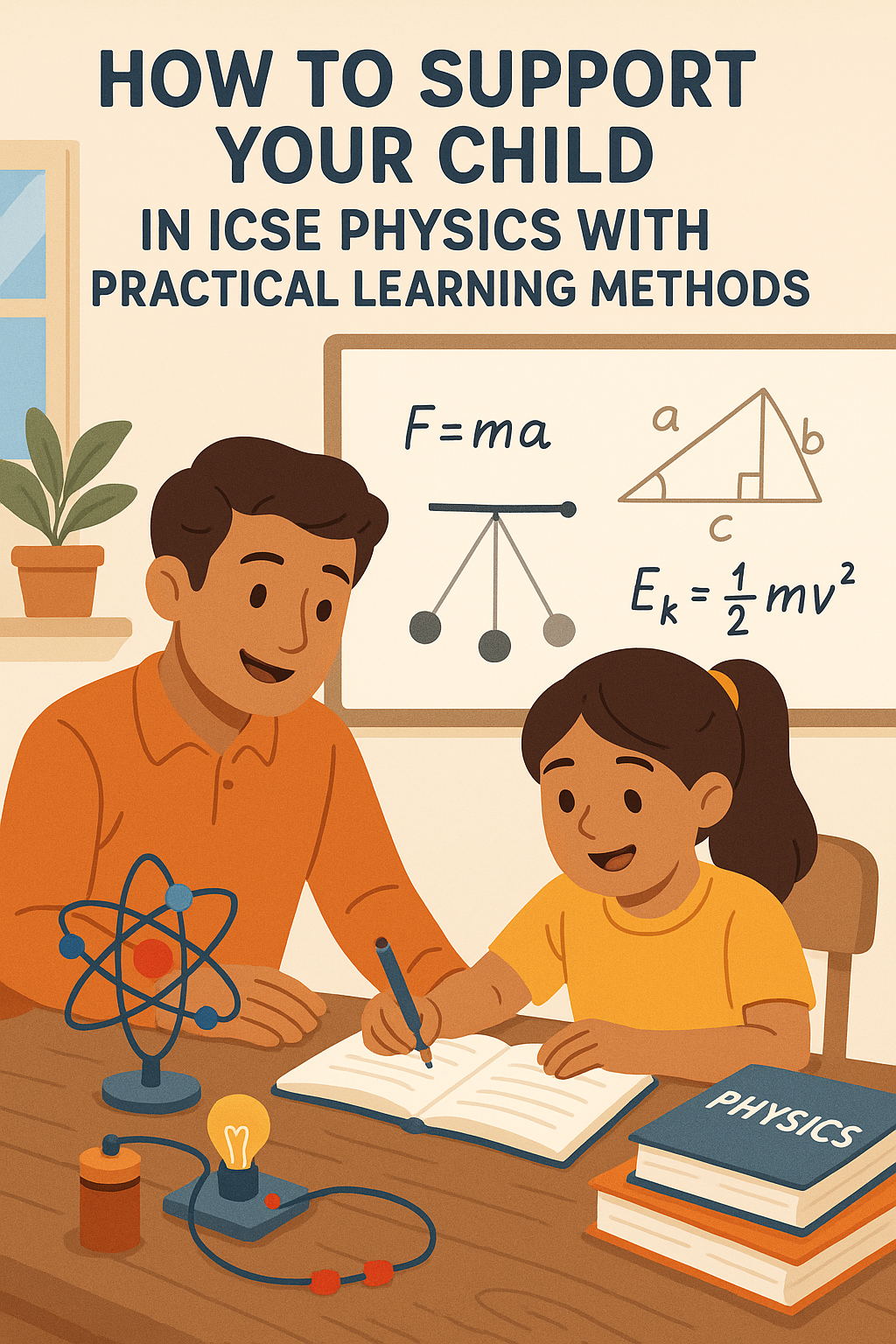
A parent-friendly guide to supporting children in ICSE Physics using practical methods, real-life learning and...
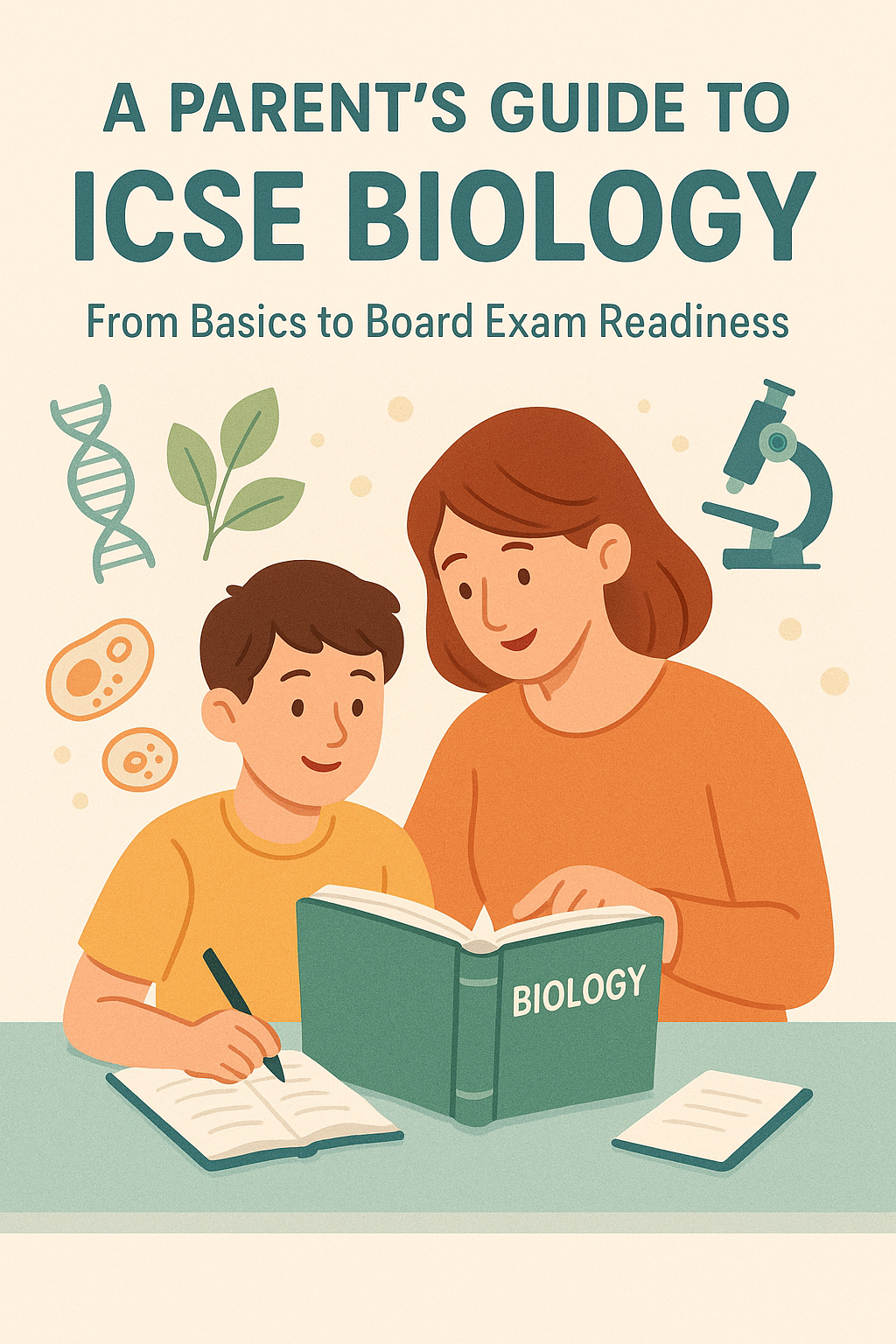
A complete parent-friendly guide to ICSE Biology, covering basics, syllabus insights and steps to help students...
.jpg?width=500)
Build strong ICSE Chemistry fundamentals with simplified concepts, smart study strategies, and structured ICSE help...

Improve ICSE History learning with engaging strategies, simplified explanations, and smart study tools. Help...
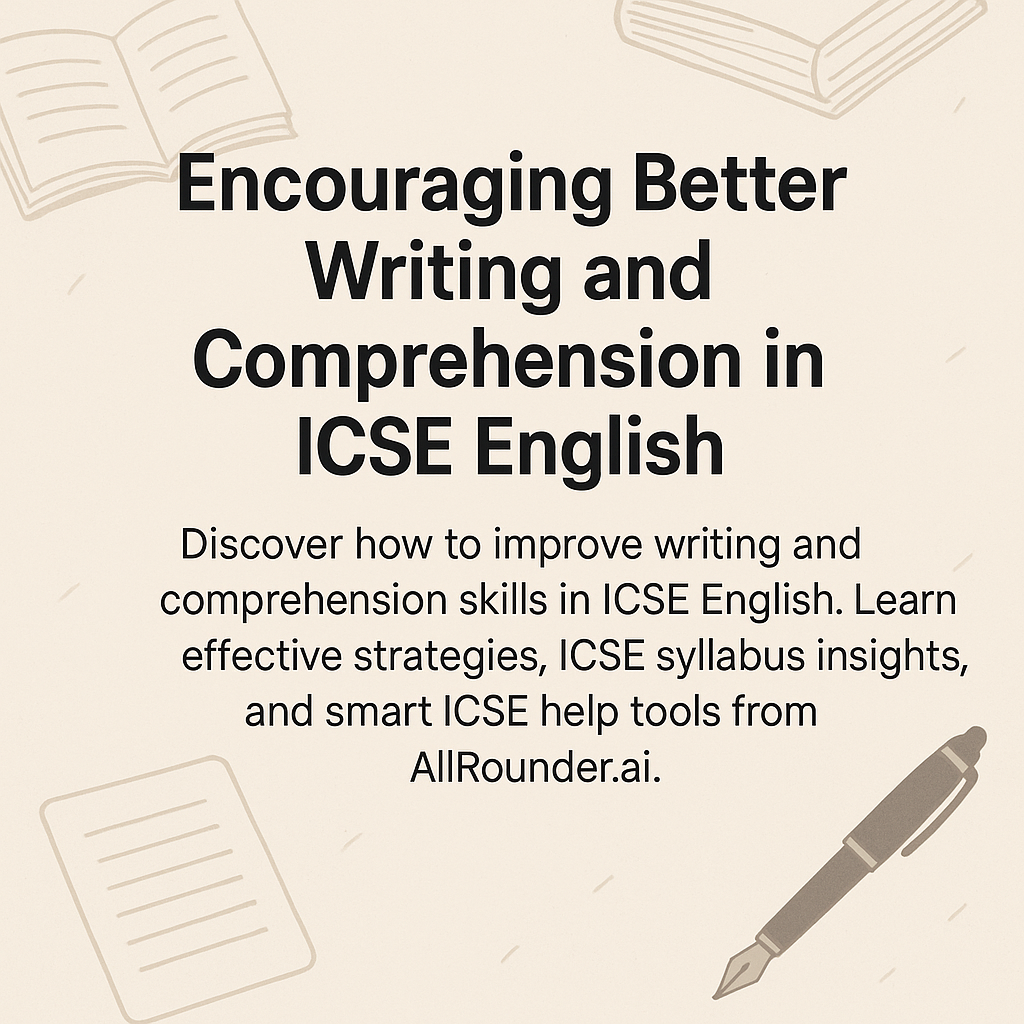
Discover how to improve writing and comprehension skills in ICSE English. Learn effective strategies, ICSE syllabus...
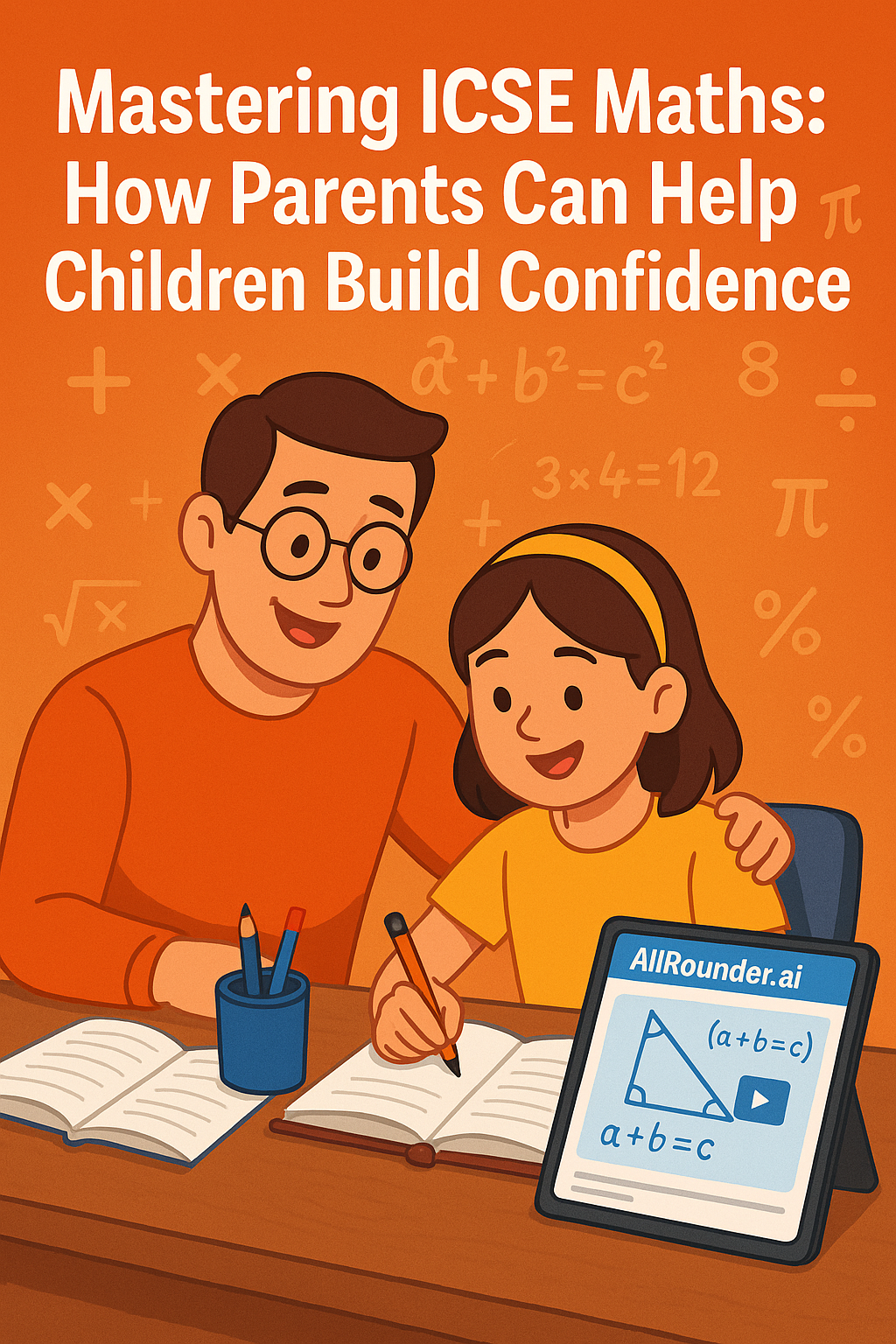
Discover practical ways parents can help children master ICSE Maths. Learn about the ICSE syllabus, study...
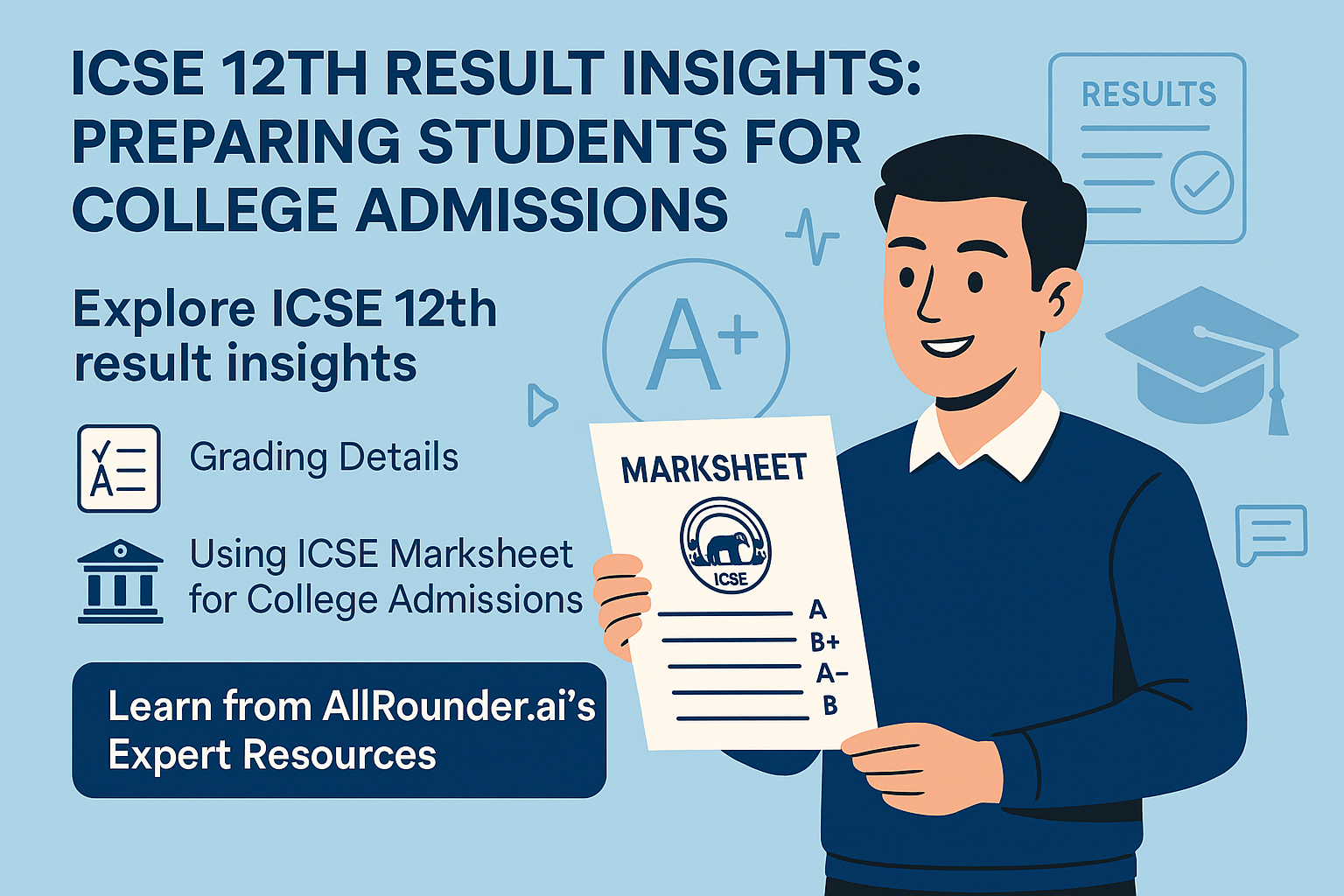
Explore ICSE 12th result insights, grading details, and how to use your ICSE marksheet for college admissions. Learn...
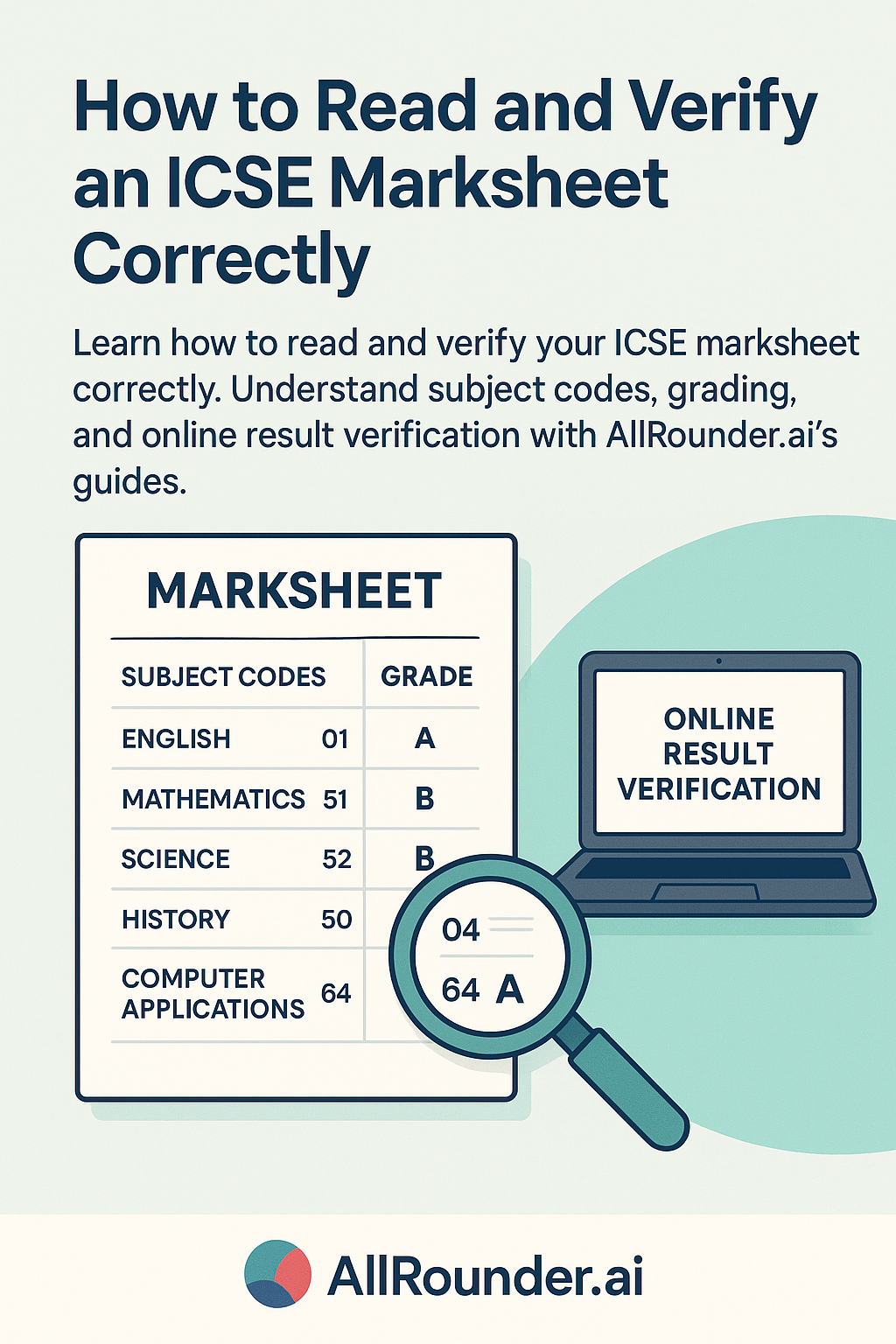
Learn how to read and verify your ICSE marksheet correctly. Understand subject codes, grading, and online result...
.jpg?width=500)
Explore key ICSE 10th result trends, marking patterns, and expert tips to excel in the ICSE exam with...
.jpg?width=500)
Master concept-heavy ICSE subjects with simple study strategies, smart tools, and AllRounder.ai’s personalized...
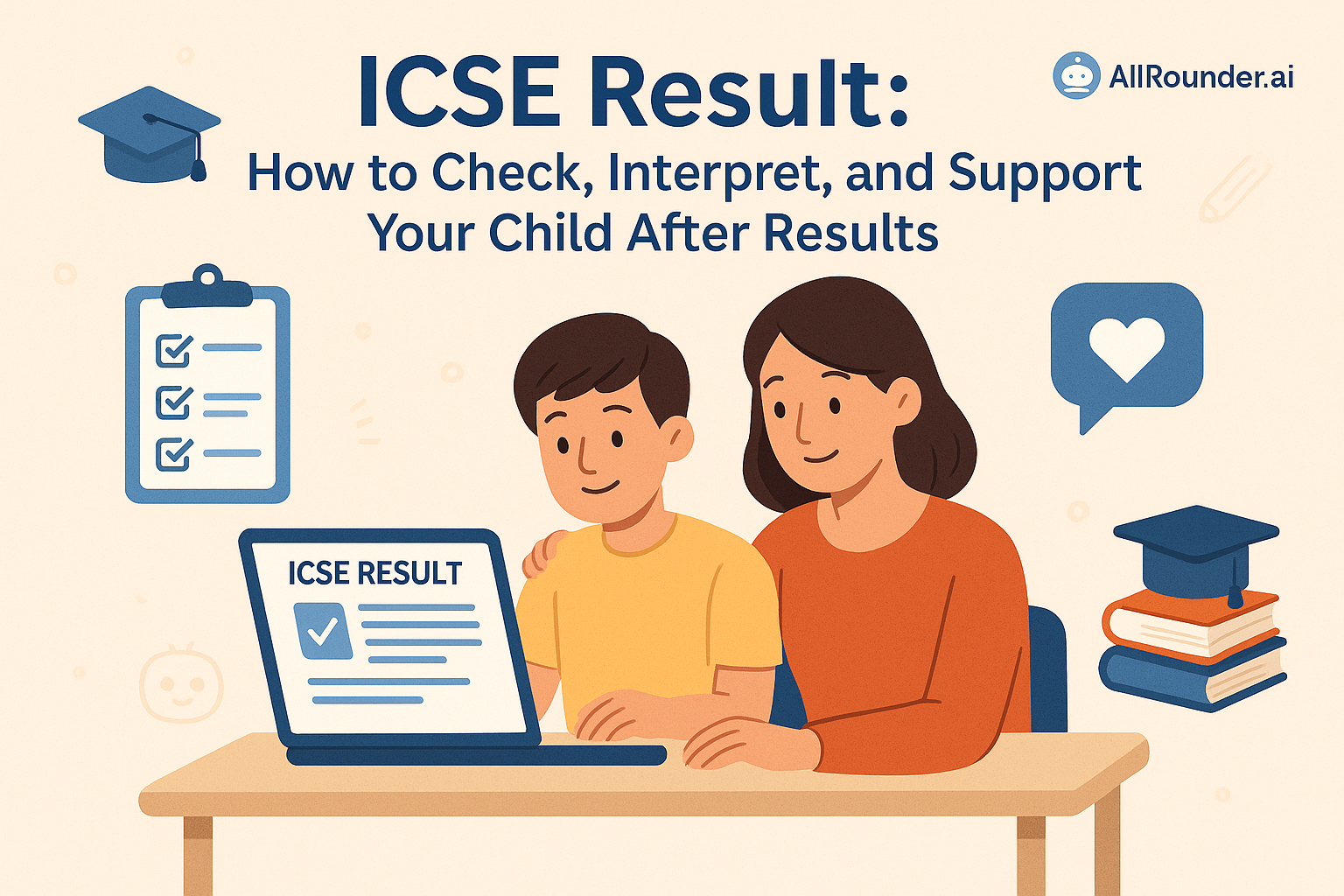
Learn how to check ICSE results, understand grading, and support your child emotionally and academically with help...
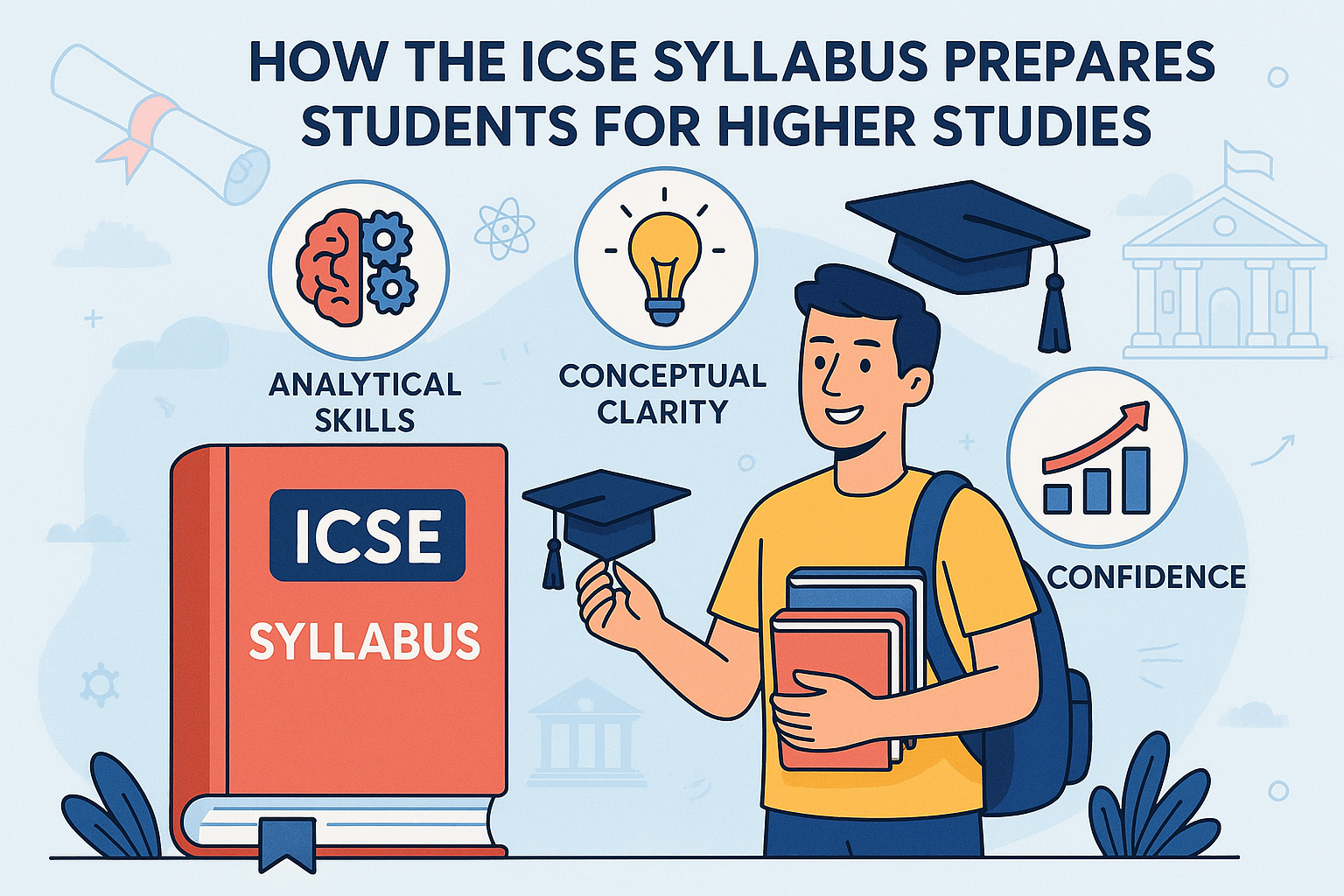
Discover how the ICSE syllabus builds analytical skills, conceptual clarity, and confidence to prepare students for...
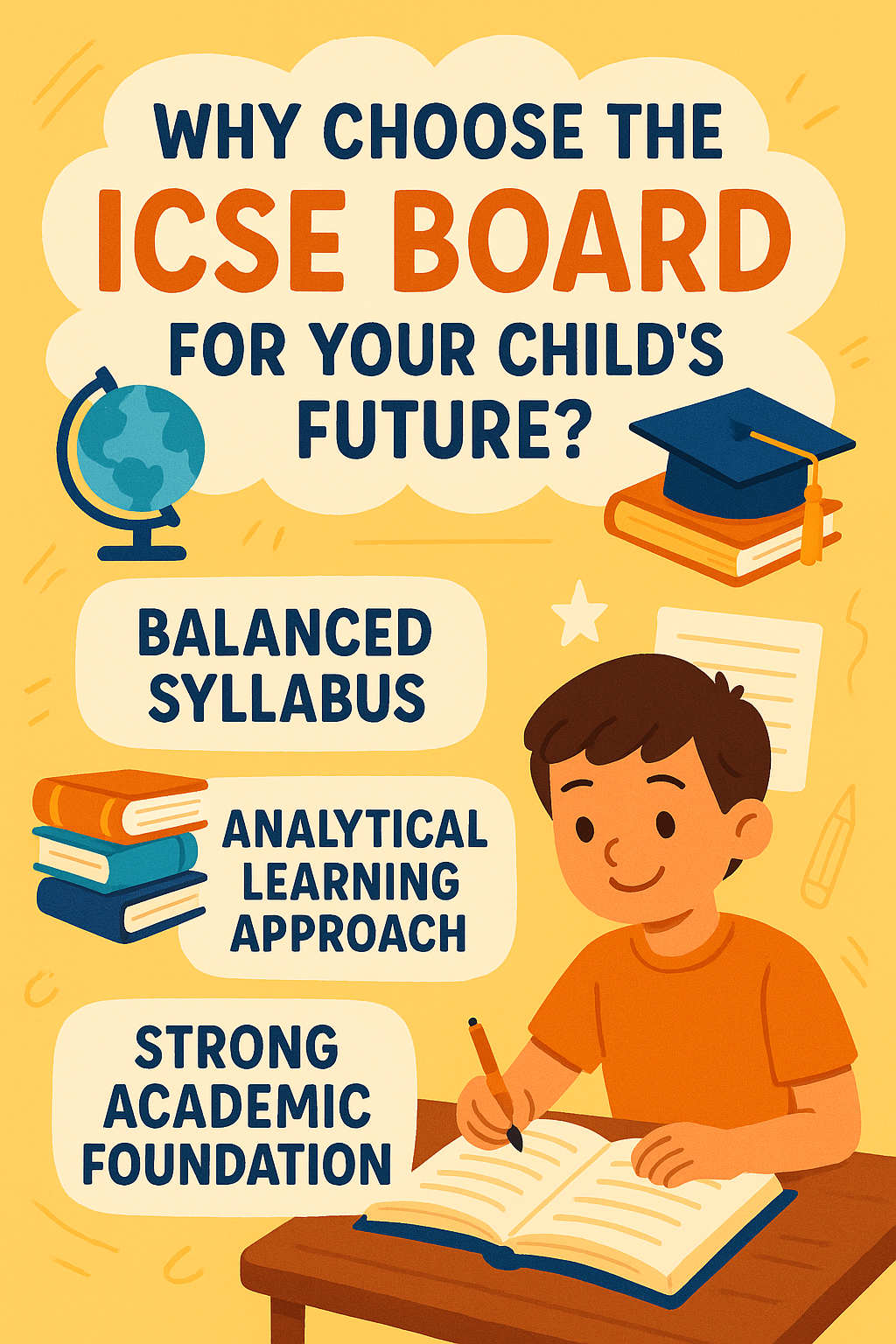
Discover why the ICSE board is ideal for your child’s future with its balanced syllabus, analytical learning...
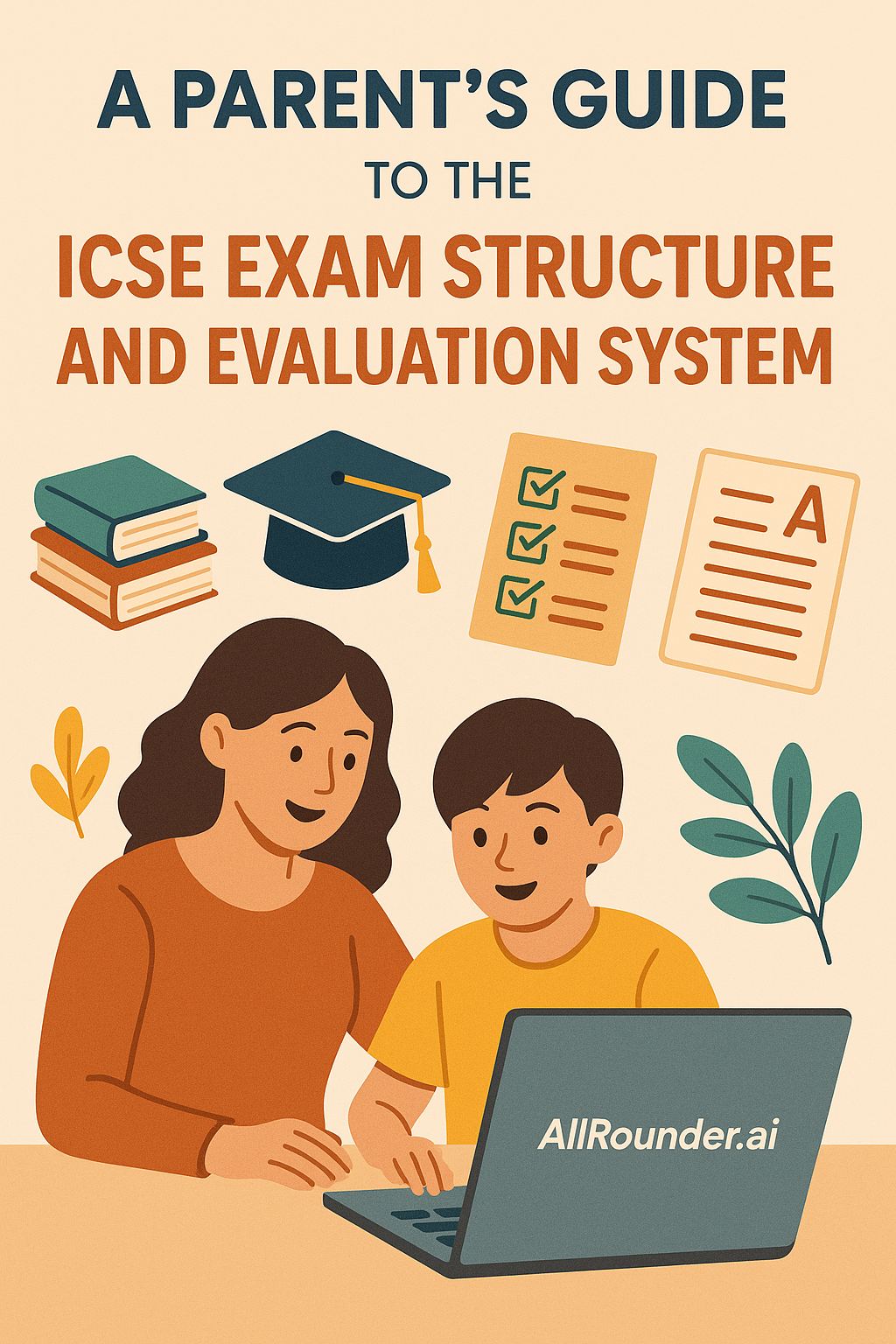
Understand how the ICSE exam system works with this detailed parent’s guide. Learn about subjects, evaluation...
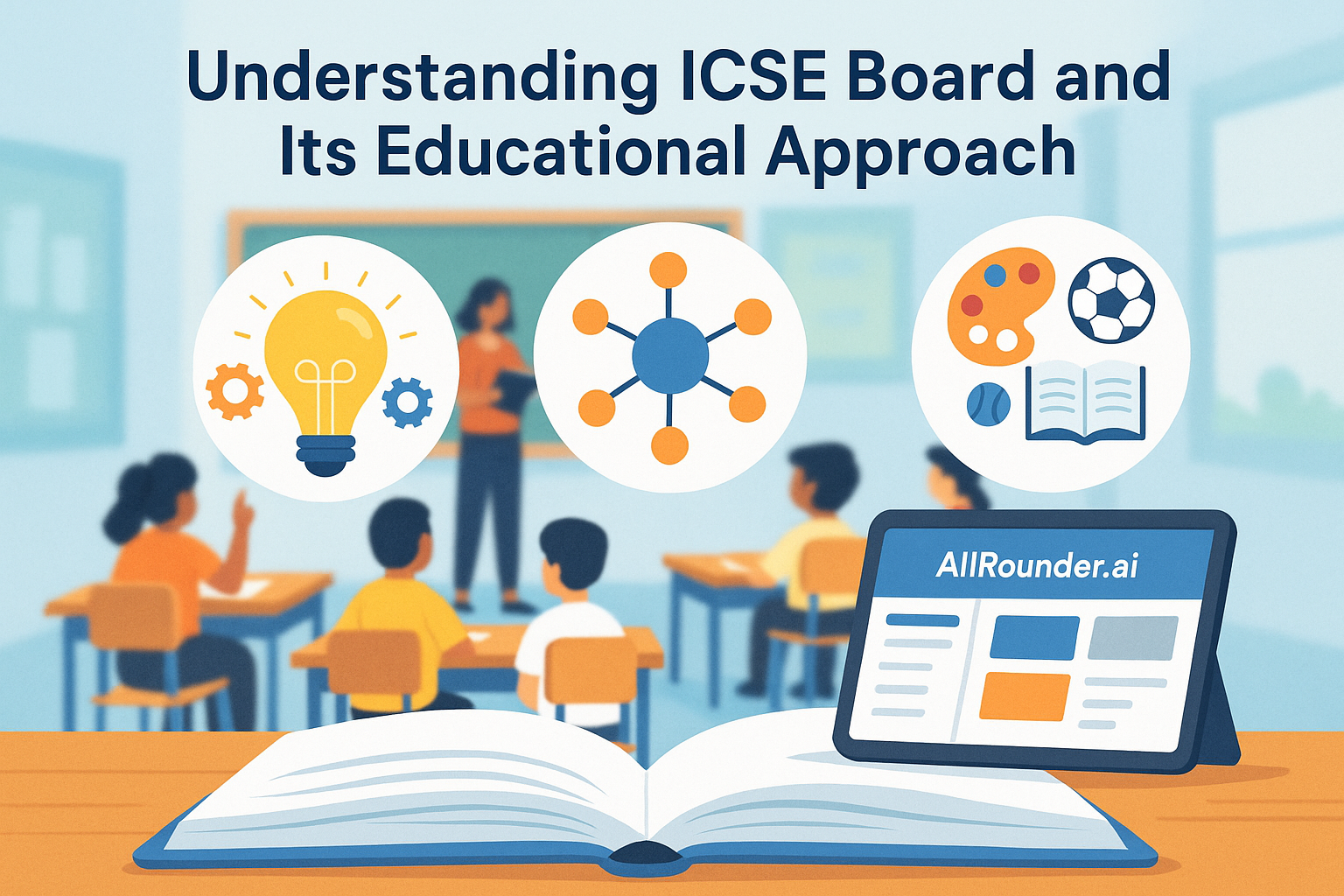
Learn how the ICSE board promotes analytical thinking, conceptual understanding, and balanced development. Discover...
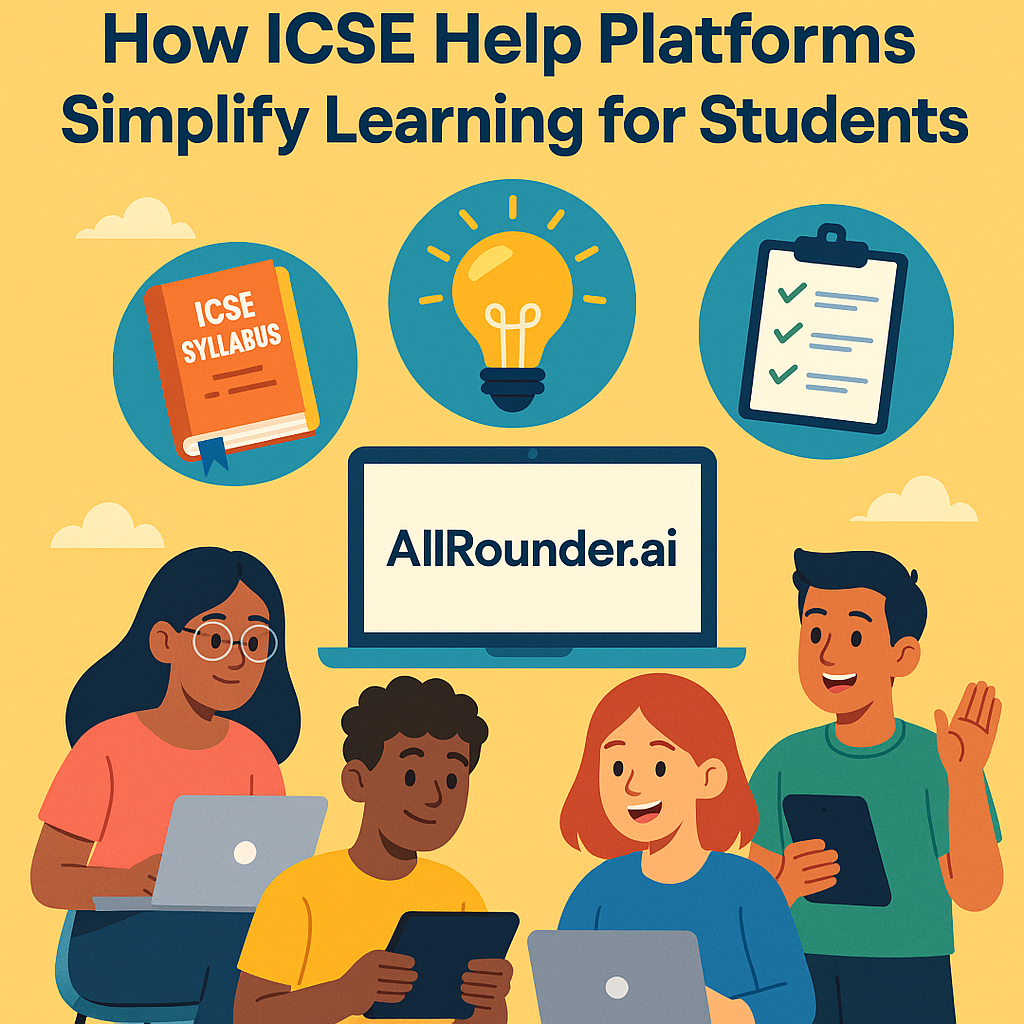
Explore how ICSE help platforms like AllRounder.ai make learning simpler for students by breaking down the ICSE...
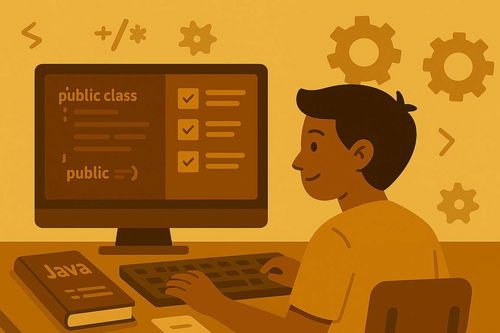
A complete guide to the ICSE Class 10 Computer Applications project work. Learn how to choose a topic, plan design,...

Discover the best reference books for Class 10 ICSE Maths. Learn how to use them effectively with AllRounder.ai’s...

Planning for ICSE school fees? Our guide breaks down the costs in major Indian cities, helps you find affordable...
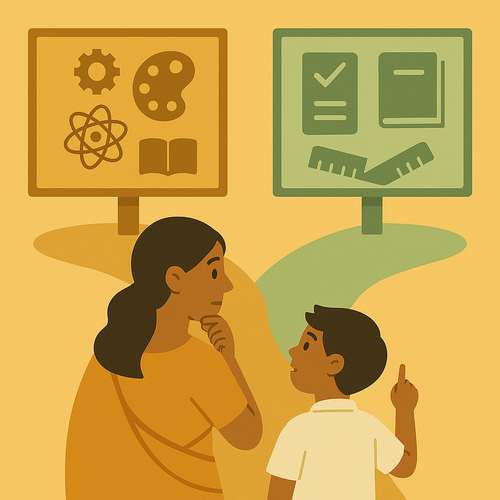
Compare ICSE vs. CBSE to choose the best board for your child. Learn about syllabus differences, teaching styles,...

Learn how to choose the best ICSE subjects for Class 9 and 10. Explore Group I, II, and III subjects, internal...

Learn how the ICSE grading system works in 2025–26. Know internal assessments, percentage calculation, and tips to...

Discover how ICSE builds critical thinking, analytical skills, and real-world problem-solving through its unique...
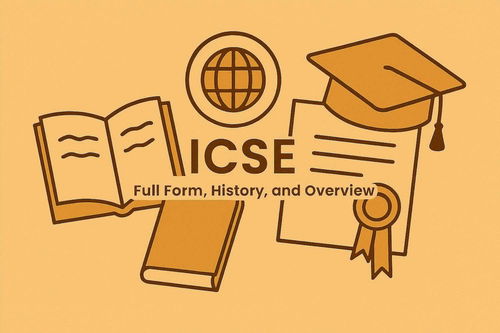
Understand the ICSE board – its history, structure, curriculum, and unique advantages over other boards.
Resources
-
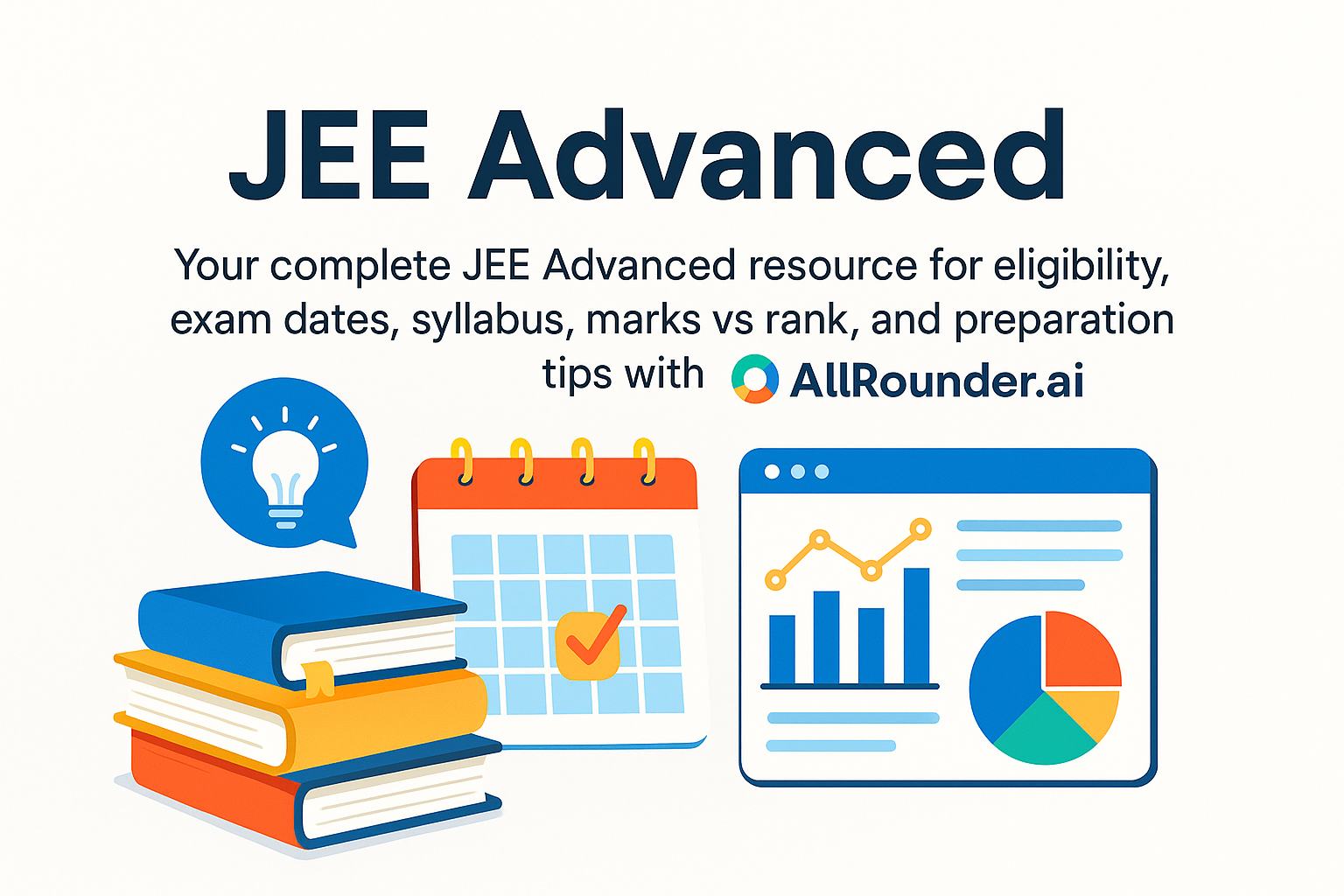
Your complete JEE Advanced resource for eligibility, exam dates, syllabus, marks vs rank, and...
-
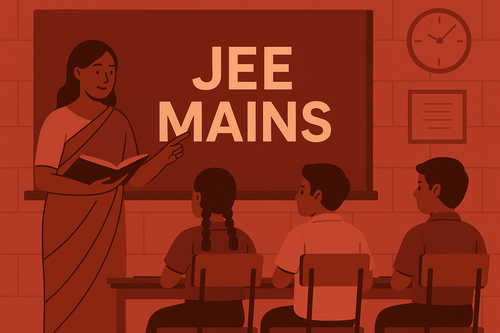
Understand the entire JEE Main process, from application and eligibility rules to the exam...
-

Explore the IB Board – a global curriculum emphasizing holistic, student-centered learning...
-

Learn about CBSE – India’s national school board offering a standardized curriculum, NCERT...
-

Explore everything about the ICSE board – its curriculum, subjects, exam format, and academic...

